Strike 2015: Lenin, stop working and high technology. A big overview of the IV international strike IT conference
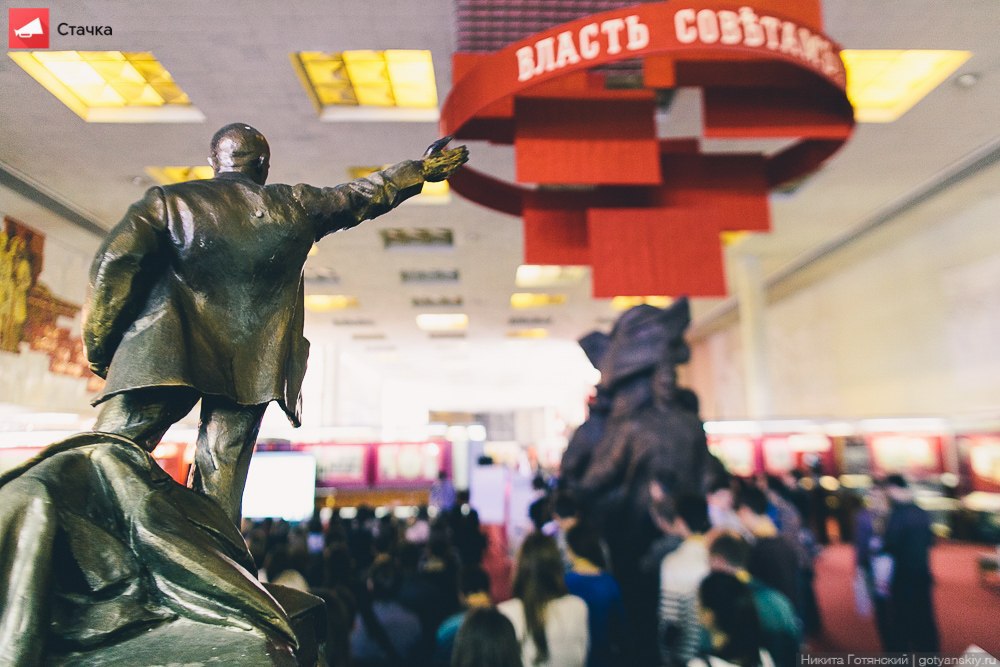
For the fourth time, an event was held in Ulyanovsk that cannot be missed if the Internet has become a workspace for you. April 10 - 11, 2015, the international strike-IT conference was held , which, under its slogan Stop working! gathered 3500 participants from 50 regions of Russia, as well as guests from the USA, France, Germany, Austria, Belarus, Iraq (yes, an entire delegation from Basra), and became one of the largest industry conferences in the country, approaching the level of the metropolitan RIF + CIB.
Representatives of the most diverse professions gathered at the “Strike” at the Lenin Memorial: serious programmers, “green” IT students, bearded owners of web studios and Internet agencies, energetic Internet entrepreneurs, sleek Internet marketers and beautiful SMM-readers. But who you just will not meet here! The main thing that united this vibrant crowd was the desire to obtain the maximum amount of practical knowledge that could be applied to work the very next day.
6 sections, 8 rooms, 130 experts, 142 reports, 5 workshops and 6 round tables - these are the numbers of the “Strikes” in 2015. And now, first things first.
Digital insights: crisis and performance marketing
The digital communications section has firmly taken the place of one of the conference leaders. The section is supervised and selected by speakers Nikolay Fetyukhin , general director of MST Agency and one of the organizers of the Strike. This year, Andrei Terekhov personally took an active part in the preparation and moderation , a person known to everyone in the digital world. Such cooperation could not bear fruit, the program was the best in the history of the conference. The hall allocated for this section of the hall was clearly not enough, people were sitting on the stage, on the floor, standing in the doorway and crowding in the corridor.
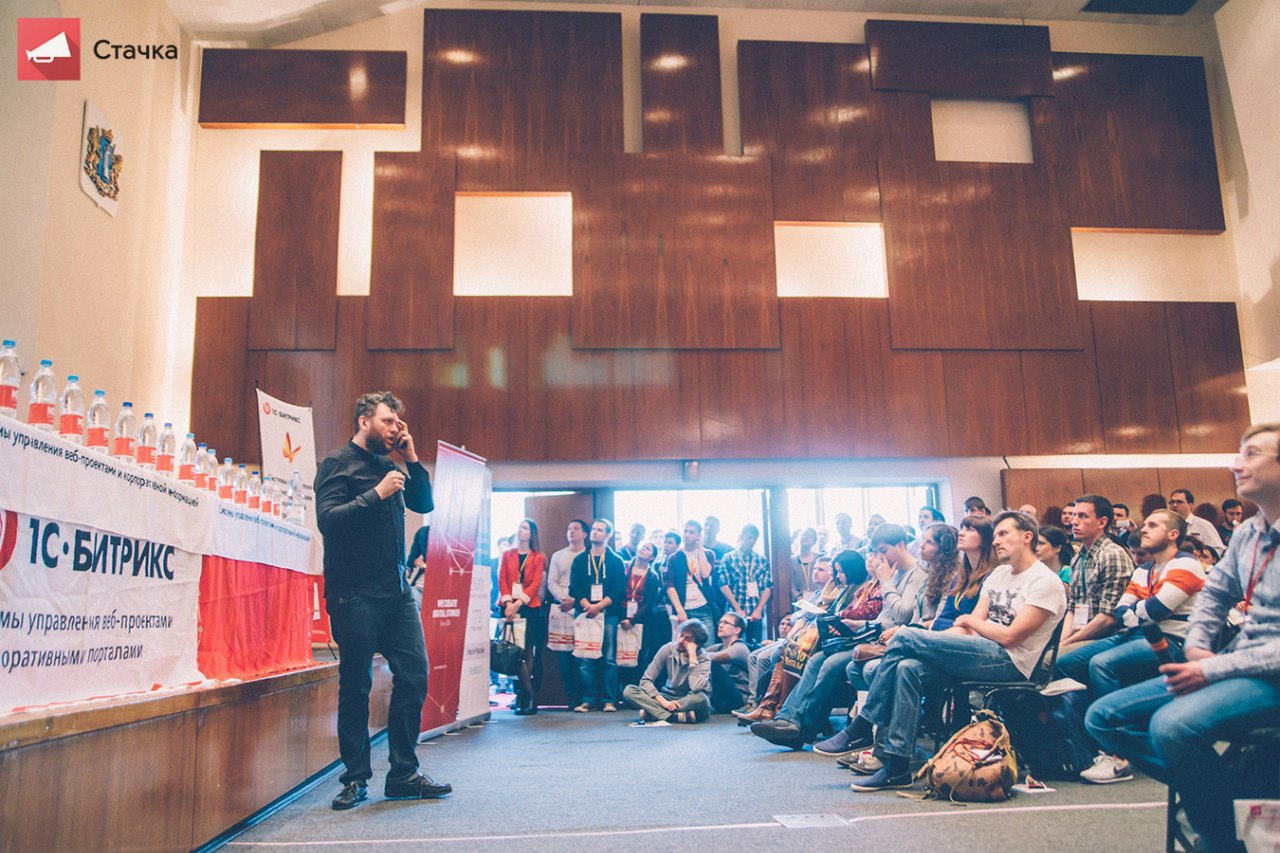
According to the participants, the most fun speakers will gather in this section. In digital, there is no way without creativity, although there are sometimes problems with this. Unique Vitaly Bykovfrom Red Keds shared a personal recipe for creative staff motivation. Money, food and real estate - shake, but do not mix. His report at the Strike was about the proportions and how to use these tools, so that the output would be advertising like Red Keds.
Work with creative people, namely with designers - fragile and vulnerable creatures, was also devoted to a report by Ilya Avdeev , art director of CreativePeople. Ilya told how to set the task correctly and then evaluate the result so that the designer does not become depressed and the project does not lose the fighter.

Most of the reports focused on the internal problems of online agencies and web studios. The company’s strategy, work with business processes, rebranding, staff shortages were discussed by the Director General of Pirogov BureauEvgeny Chernov , Nikolai Okhitin , Managing Director of Dr.Jung, General Director of the leading Siberian digital agency Wow Nikolay Glukhikh .
Anatoly Denisov , editor-in-chief of CMSmagazine, shared his view on the agency’s anti-crisis pricing. In his opinion, increasing the cost of services is not the best measure in the fight for the client, it is much more effective to work on reducing costs.
By the way, no matter how much they say that the crisis is not in the market, but in the head, he had a serious impact on the section program. Alexander Grigoryev from Ingate Development spoke about customer search in times of crisis . About anti-crisis marketing - Anatoly Emelyanov(ONETOUCH). The crisis in the digital communications market was dedicated to a separate round table. The leaders of the largest Internet agencies discussed the current situation and trends in the development of the digital services market for 2015-2016.
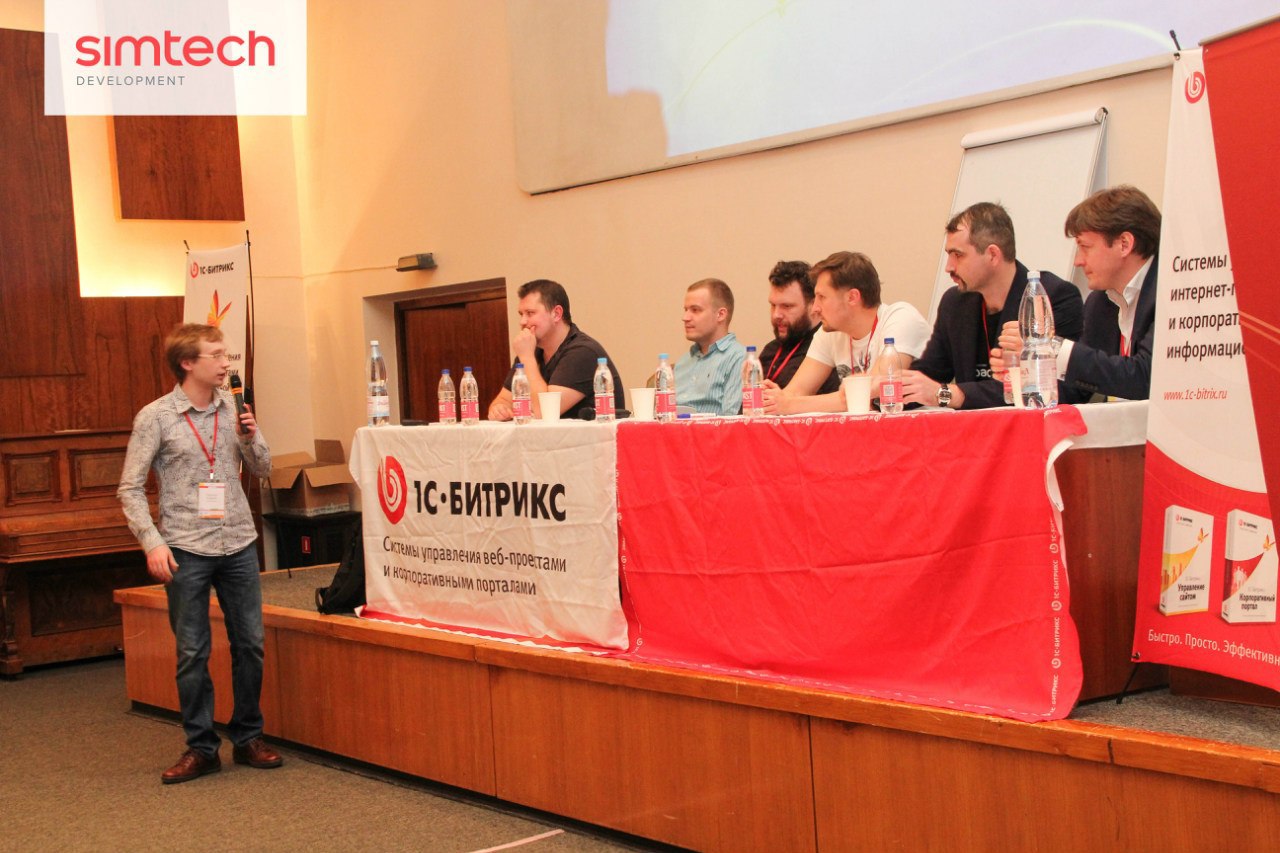
But Alexey Ramensky (“Tagline”) had his own opinion on this matter. “The lack of ideas and drive is where your real crisis is,” he denied previous speakers. By the way, his report was called so.
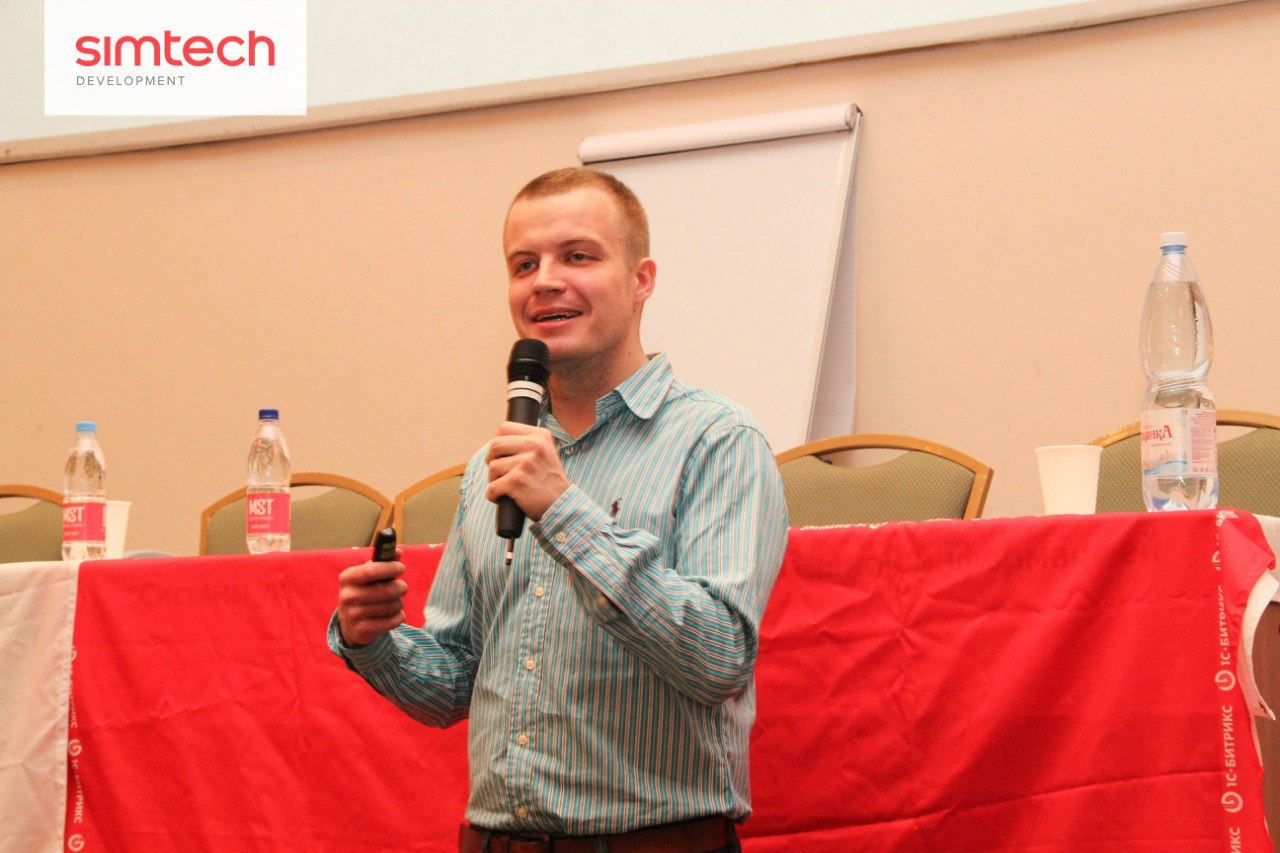
Part of the speeches was focused on customers of online agencies. Those who were at the report of Andrei Terekhov from RUWARD now know what the price of the project consists of and how to understand what you are overpaying for. Charismatic Vladimir Zavertaylov, the general director of Sibiriks, shared cases when post-release support for a project was extremely expensive for clients, but ended in a fail.
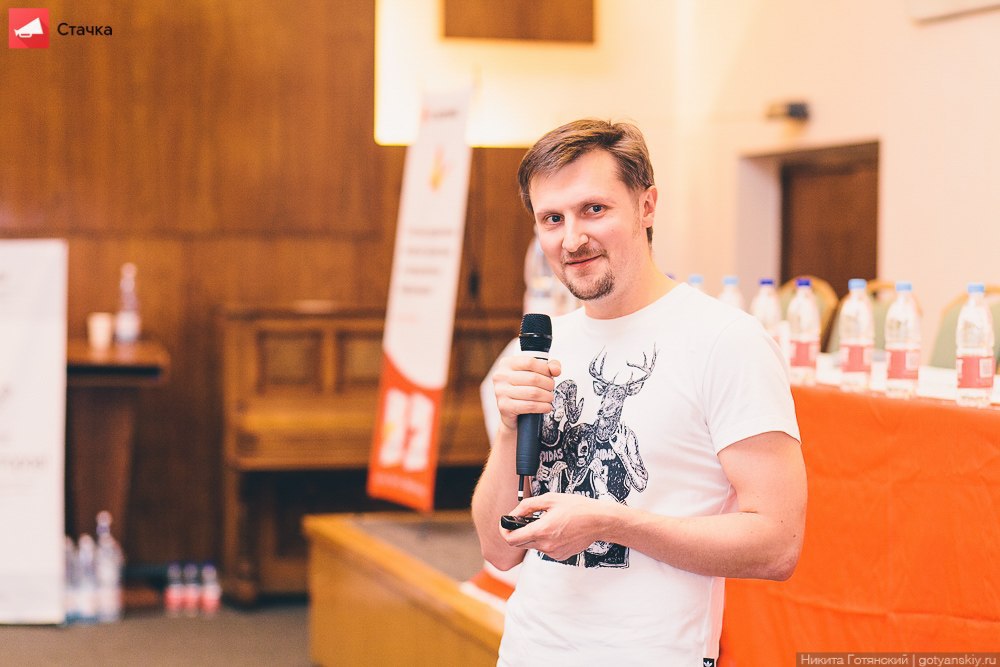
About the tools of the work of Internet marketers spoke on the second day. Have you ever seen that the topic is not laid out on shelves, but put in a cake? Alexey Ezhikov (RUWARD / AG&AT) baked a delicious cake from the most effective techniques and techniques of Internet marketing. It should be noted an extremely unusual approach.
Daniil Filin (MOST Creative Club) shared his knowledge in the field of online projects integrated with offline.
Two “sharks” of work with social media spoke about their SMM practice this year - Andrey Volkov from GRAPE and Elena Kupriyanovafrom Artucul Media. They promote well-known brands on social networks, so if you don’t get on their reports, bite your elbows.
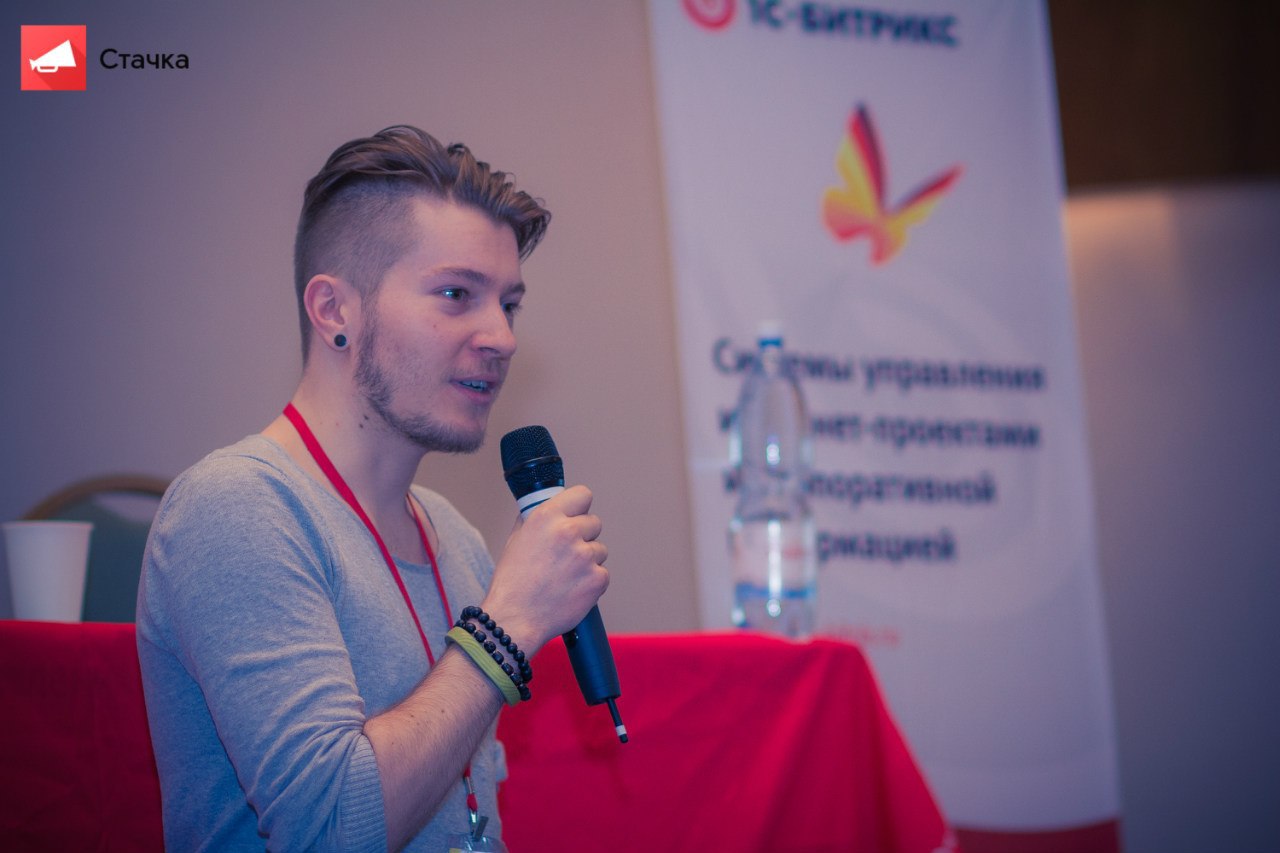
And of course, one cannot fail to mention two speeches that touched on the fashionable topic of performance-based marketing. Cheerful guys from Reaspekt Ravil Sabirov and Andrey Anisimov talked about the principles of working for the result, and Nikolai Fetyukhin from MST Agency talked about analytics and tools for measuring the result.
In general, the section program turned out to be rich, boring and trendy. Move on.
SEO, context: keep abreast
A few words should be said about the other direction of digital communications - search engine optimization, analytics and contextual advertising. A separate room was allocated for them, which, by the way, was never empty. What interesting could you hear here?
For example, Vasily Tkachev (All in Top) revealed the secret that links still work, although Yandex seems to have canceled them. About the return of search engine optimization sites said Ivan Nikitin ("Ivan Nikitin and Partners"). The speakers focused on the monopolization of search results, the independent development of a semantic core, the calculation of ROI in contextual advertising, SEO in the region, filters and sanctions in 2015.
Ivan Nikitin: “It was nice to meet our clients from Moscow at a performance. I finally met them in person. They came to Ulyanovsk specifically to sort out the issues of search engine optimization themselves, because they had heard about the quality of the SEO program of the conference. ”
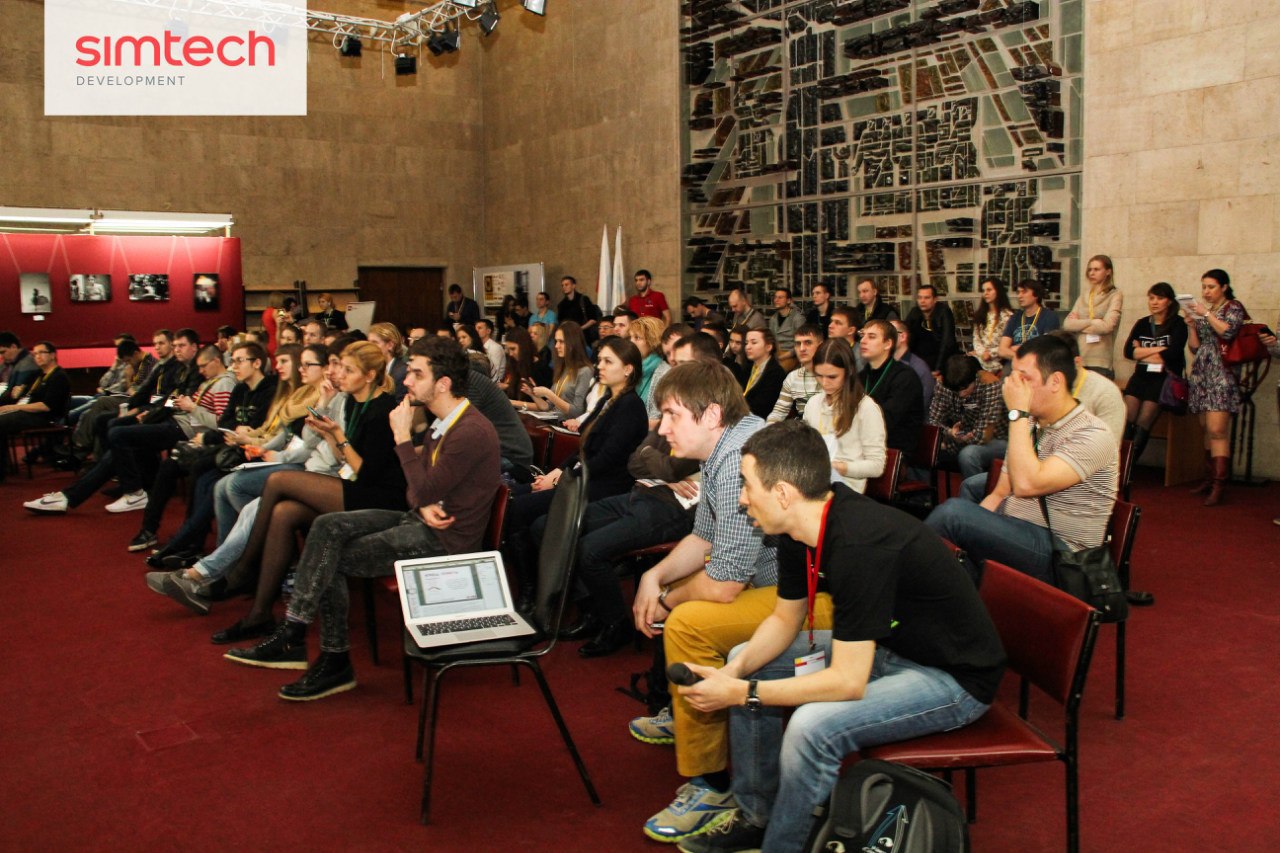
Content marketing in action
The “Content” section has become completely new to the IT conference. It's no secret that content owns the Internet. How to create it? Pavel Trubetskov , development director of Simtech Development and section curator, gathered the most famous masters of content generation and monetization.
Anatoly Denisov, CMSmagazine’s editor-in-chief, travels regularly to conferences, voicing research results. But only at the "Strike" he first spoke about his projects CMSmagazine and Rating Runet. How did a small editorial group manage to create an authoritative resource, where every second head of a web studio or agency dreams of getting with his article? Why has the Runet rating become popular, and the traffic from it provides the studio with work for the whole year? What is needed in order to repeat this success? Anatoly highlighted all these issues in his report, which is extremely interesting for any blogger or journalist who dreams of creating a media resource.
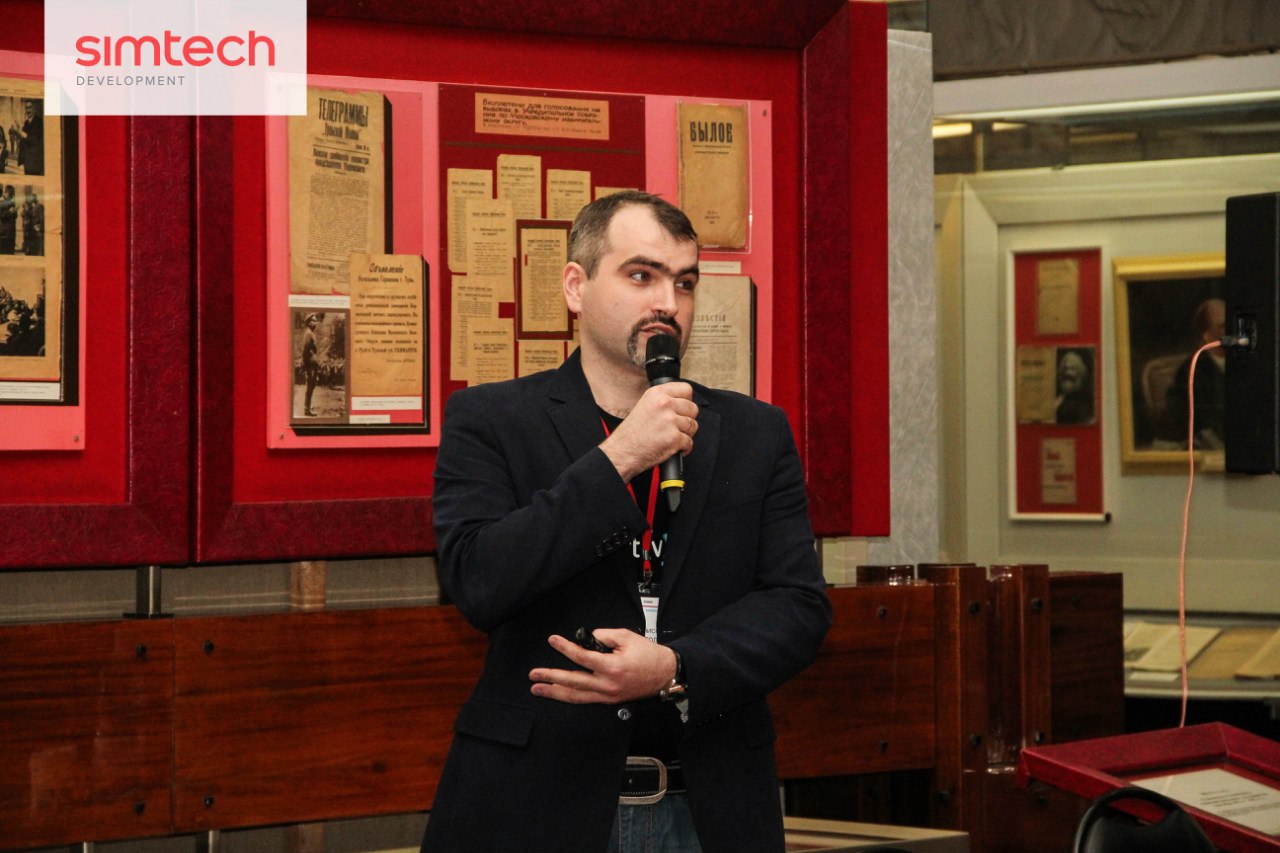
Another premiere of "Strikes" - report by Andrei Terekhov(RUWARD) about creating a personal brand. In the digital world of Andrei everyone knows. By generously handing out useful information, he ensured that his name now helps to spin up any project that he undertakes, be it RUWARD, Inforza or Digital-cluster. This is a unique personal experience, which is usually silent.
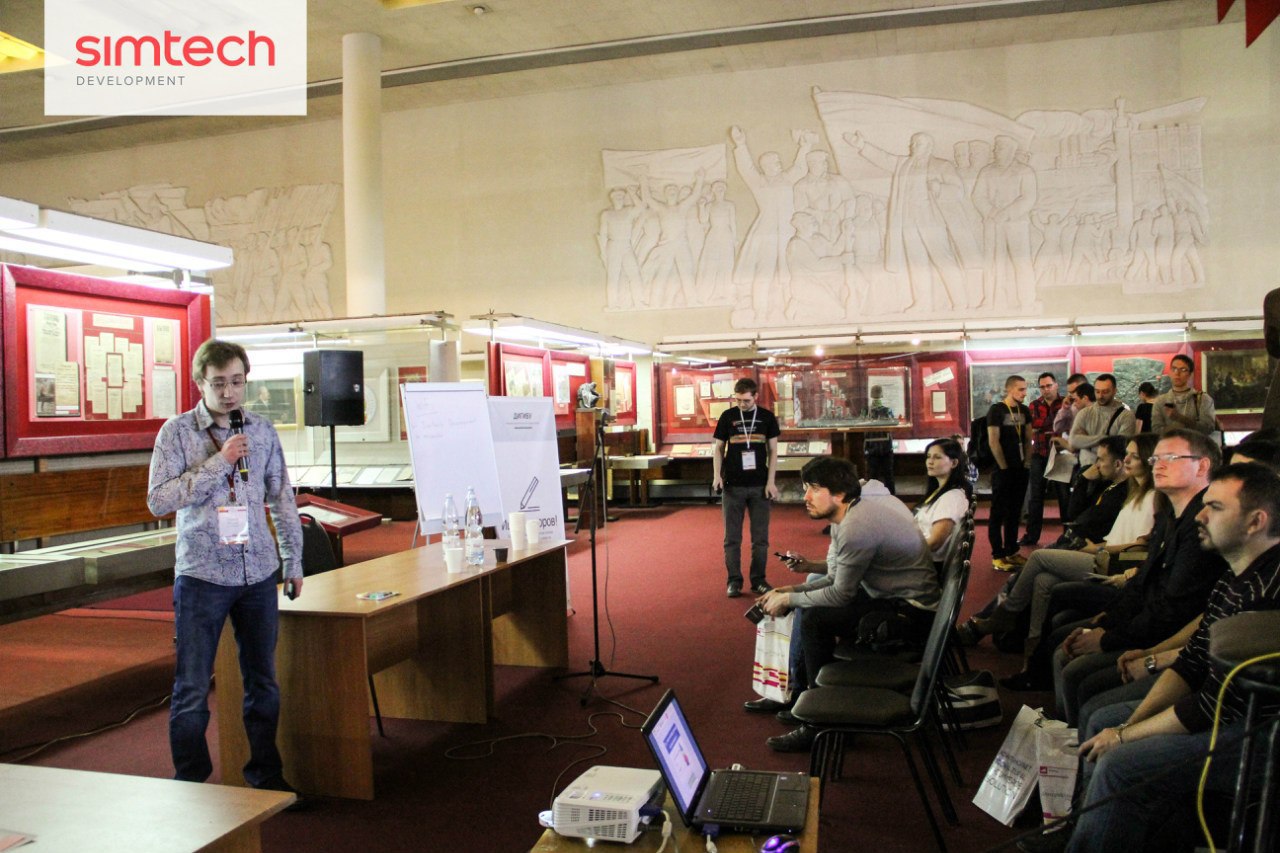
Alexey Ponomar was broadcasting from Koh Samui via Skype. 5 years ago, he took up the development of the Lifehacker project. Then few people believed that an information resource is capable of making a profit. Today, this resource is visited by more than 3.5 million people a month, and, apparently, it is well monetized.
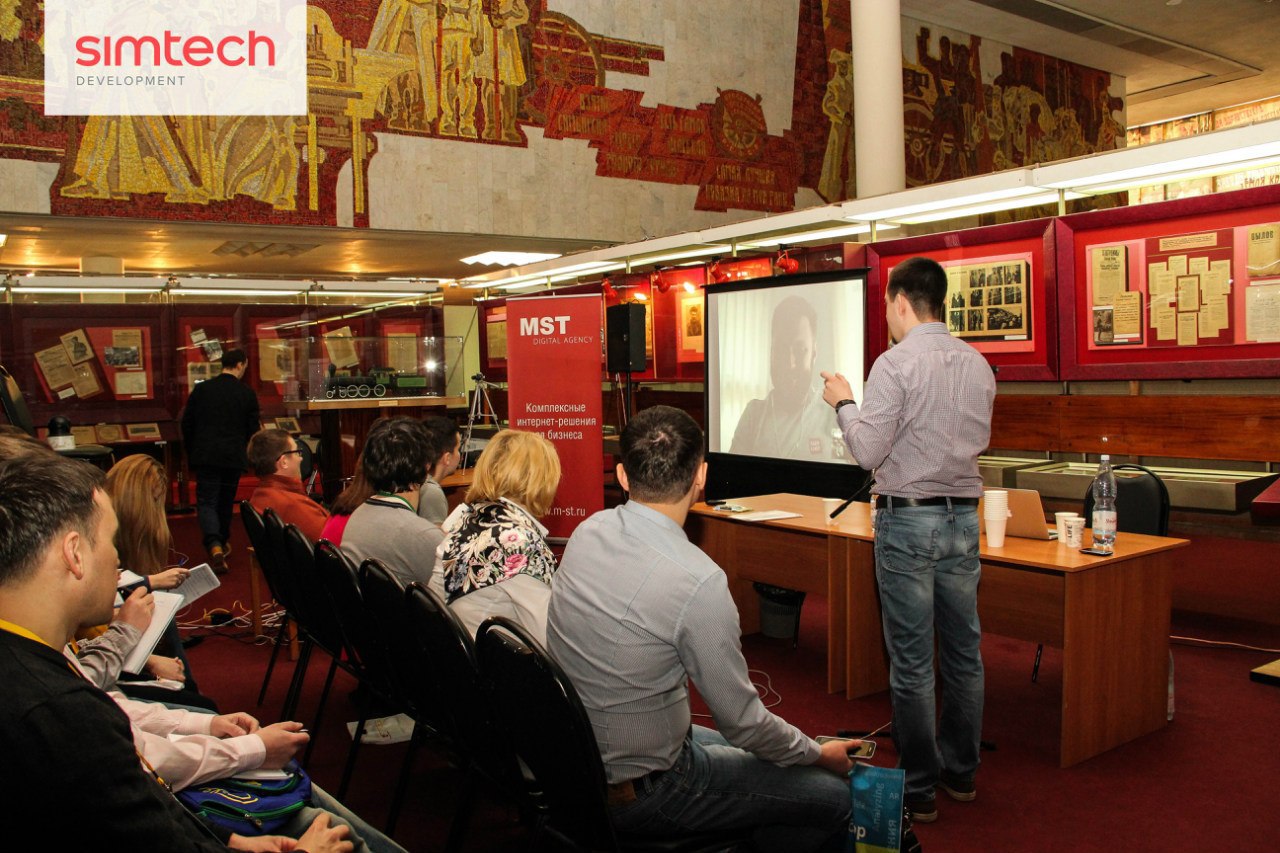
About this was the fullness of the hall on his report.
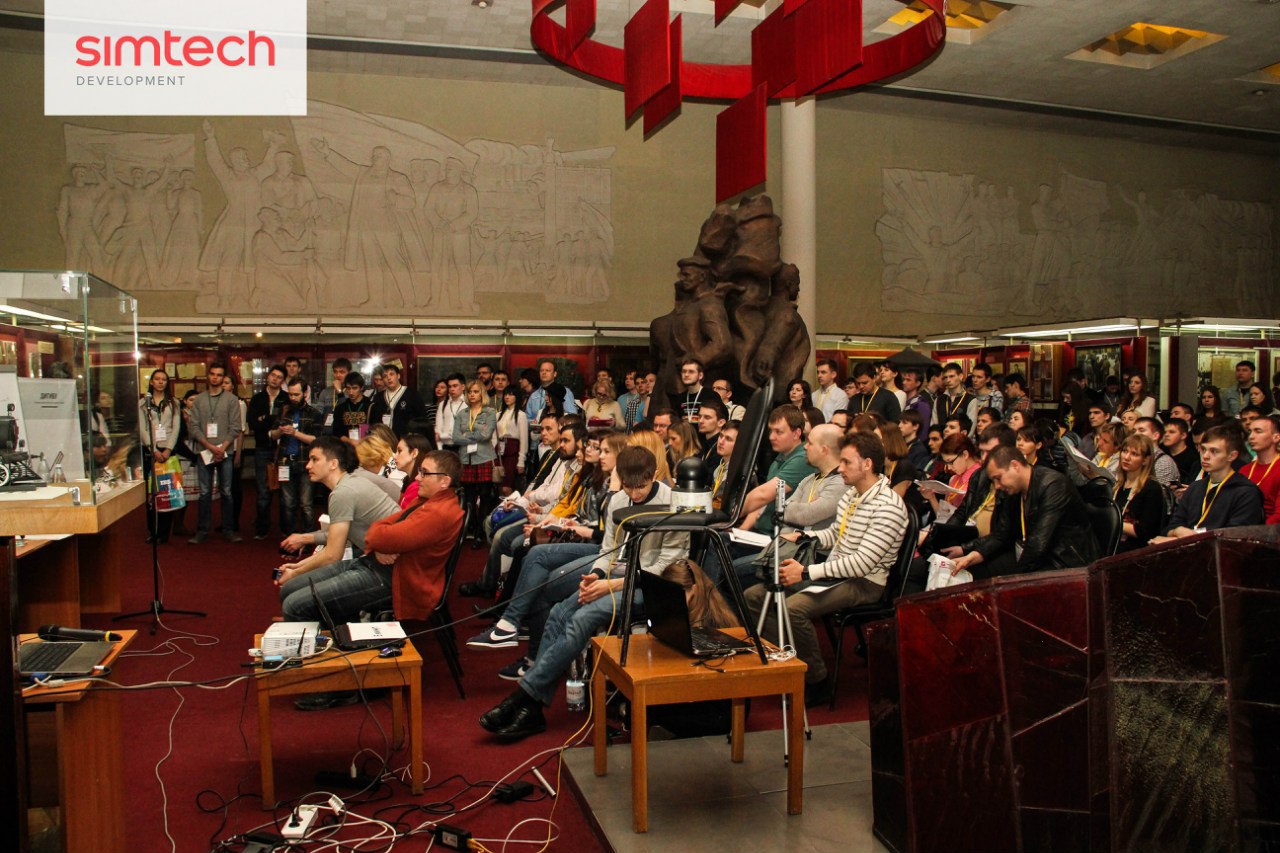
Charismatic speaker Rodion Scriabinfrom Netologia introduced the systemic work in the field of one of the most trending areas in content marketing - working with a video channel that will allow you to live without active advertising. Presentation of his report is available here . Simbirsoft
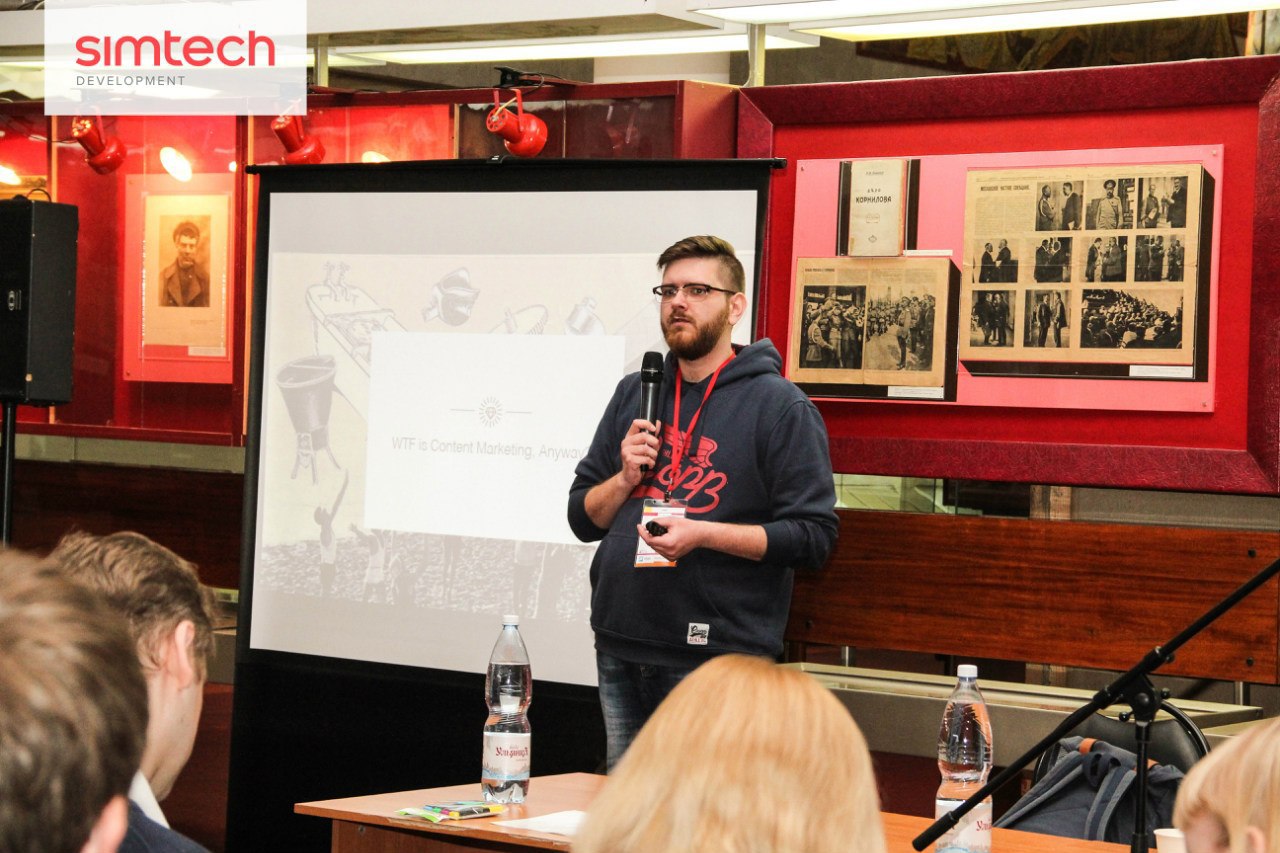
Oleg Vlasenko considered a unique project case that allowed several companies in the region to solve the most acute staff shortage problem for IT business.
There was a case at the Strike about the unsuccessful experience of generating content. Ekaterina Shukalova from the Internet agency Firth spoke about her content project in the field of the beauty industry, why he didn’t shoot and what lessons they learned from this.
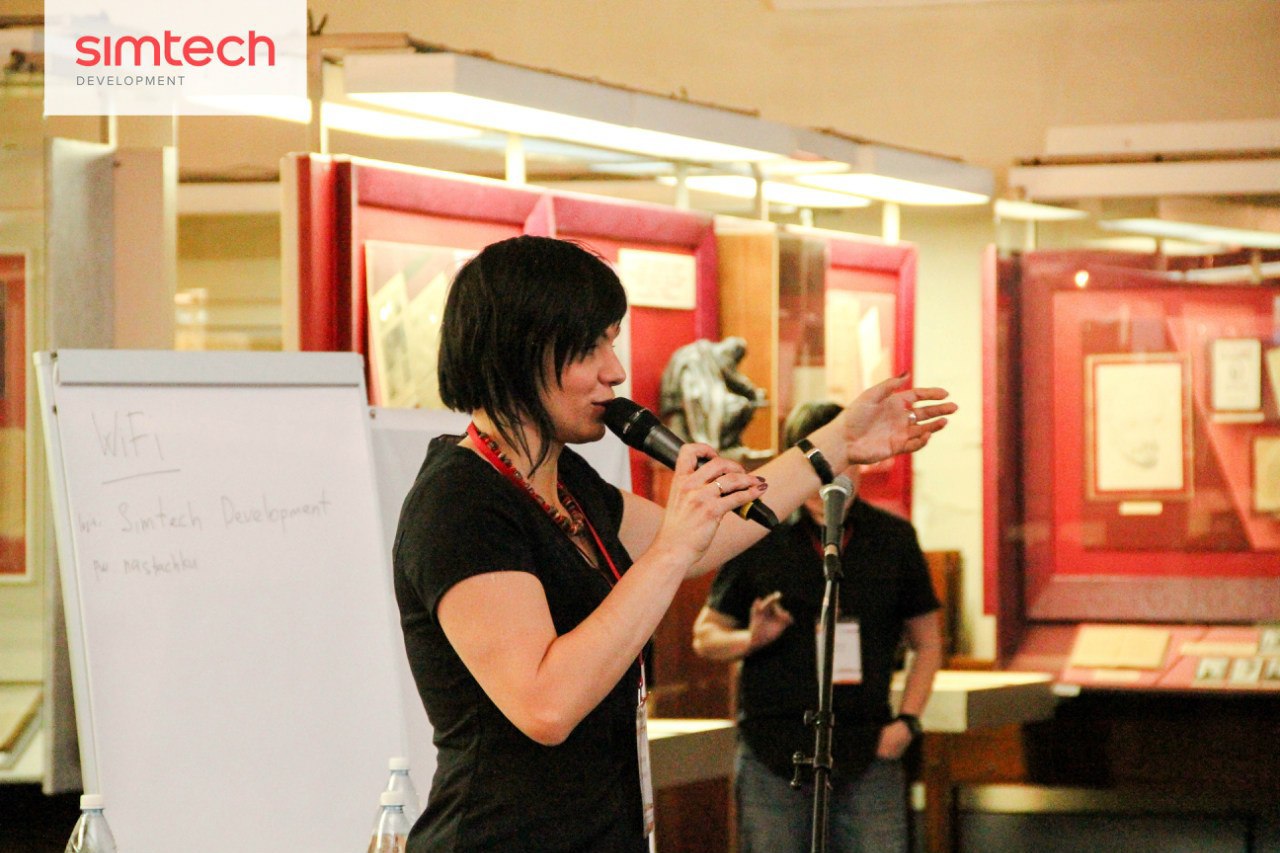
The section was completed by a truly deep master class for 2.5 hours from Peter Ponomarev(Greensales), e-commerce content marketing guru. Peter made listeners take a fresh look at the use of content in online sales. He talked about what has been practiced in the United States for a long time, and in Russia is just emerging: how to get out of price competition and create a truly loyal customer base that can be sold for a long time.
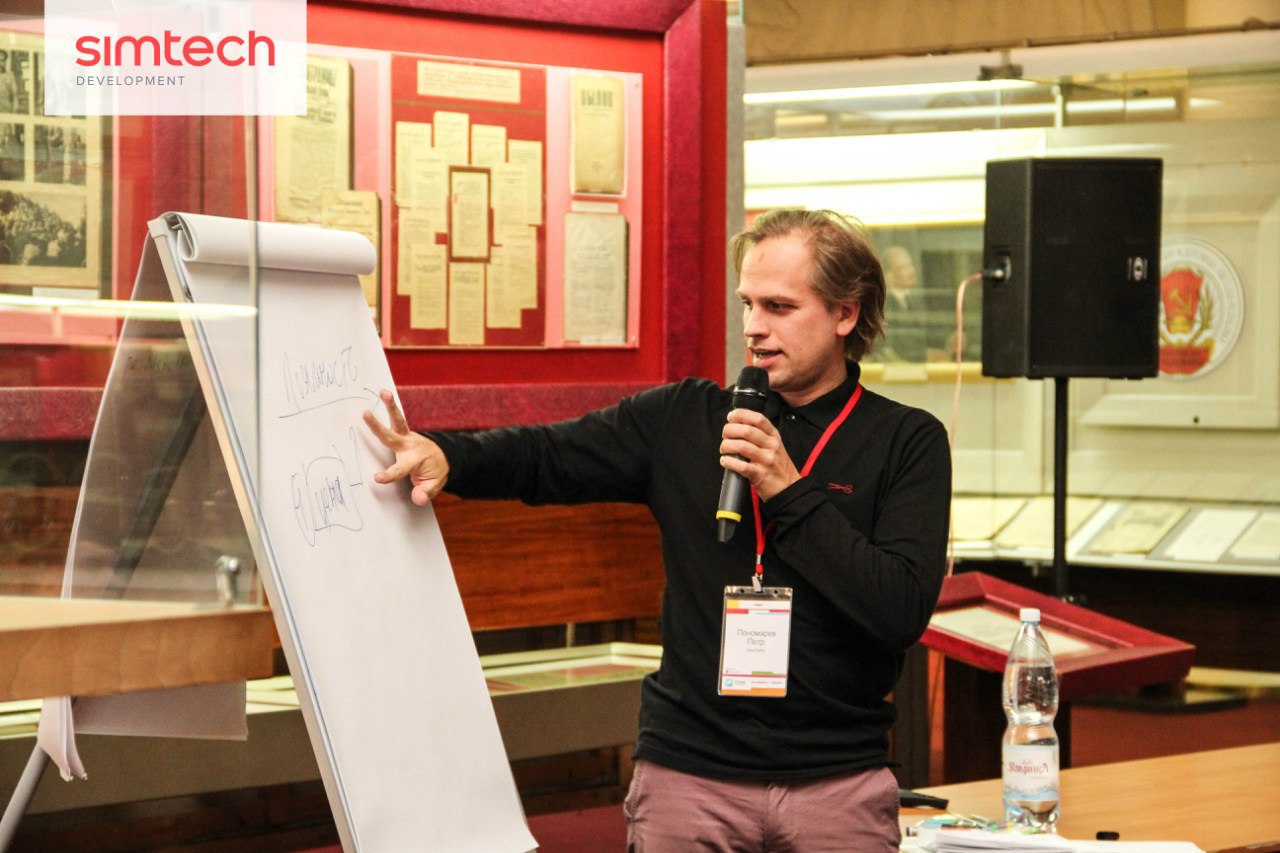
Internet of Things, Core OS, PostCSS and other trends in the technical section
Kirill Mokevnin , Technical Director of Hexlet.io, again became the curator of the technical section . The section program was enriched by strong and diverse presentations not only by Muscovites, but also by professionals from the regions, which became, no less, 53.
It is not for nothing that the “Strike” conference has a proud international status. For the second year in a row, a large foreign guest has come here. This year, Laurent Ellerbach became the headlinerfrom Microsoft's European office. Although he was announced in the technical section, his presentation on the Internet of Things was also interesting for non-technical specialists - the large hall of the Lenin Memorial with 1200 seats was full. Laurent's report was an unusual sight: the Frenchman spoke English and showed slides in Russian, carefully prepared by the Russian office of Microsoft. The presentation of his report is available in Russian and English .

Traditionally, most of the positive feedback falls on the speech of Andrei Aksenovfrom Sphinx Technologies Inc. This time Andrei prepared two reports and both got into the top of “Strikes 2015”. In the first, he expressed the opinion that an IT specialist should know: a little about everything, and not all about a little. Programming is at the same time very narrow and very broad: on the one hand, there are very few fundamental data structures and algorithms, and on the other, there are many solvable problems and special techniques. The second report was devoted to the economics of open source products and how to monetize them.
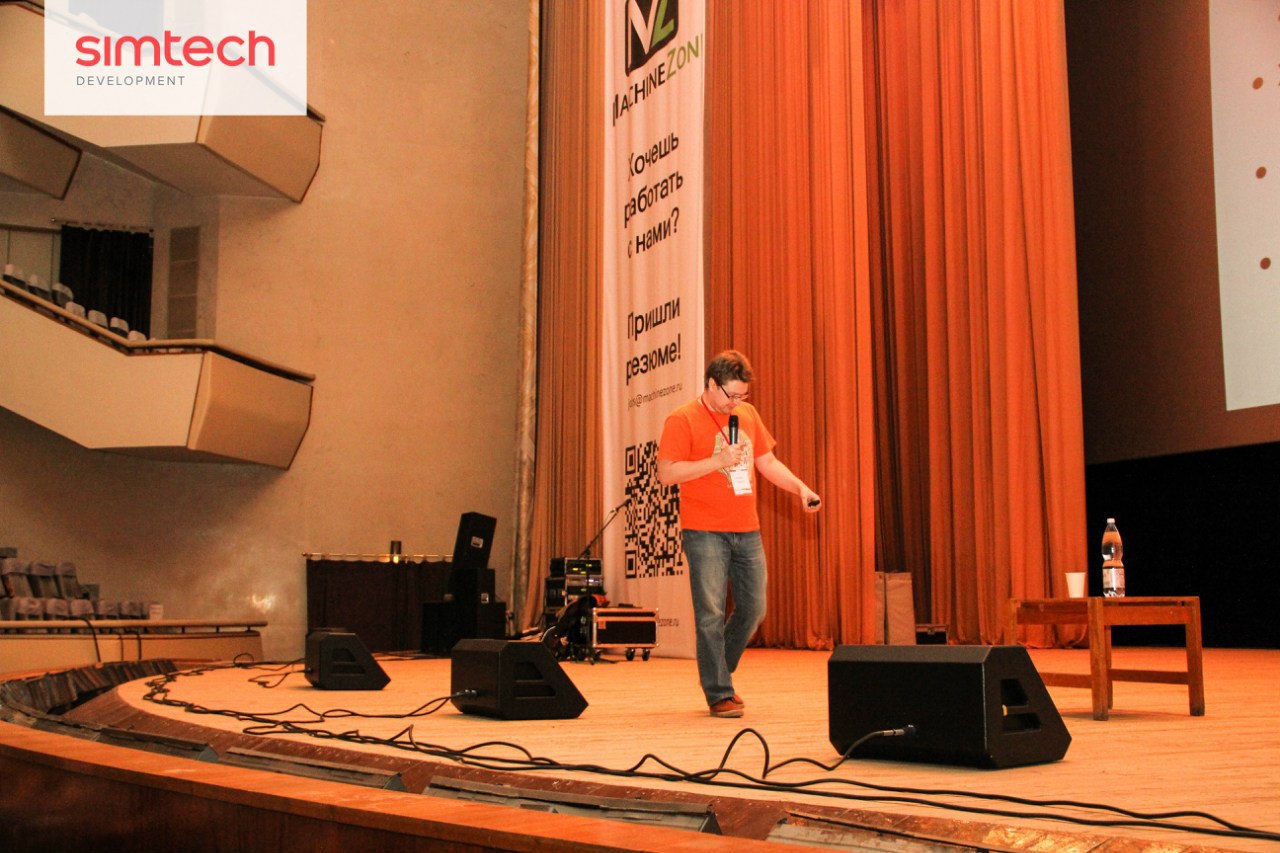
The topic of highload systems was raised. Oleg Bunin (Ontiko), a recognized Russian expert in the field of high Internet loads, revealed a step-by-step algorithm for their design and development.
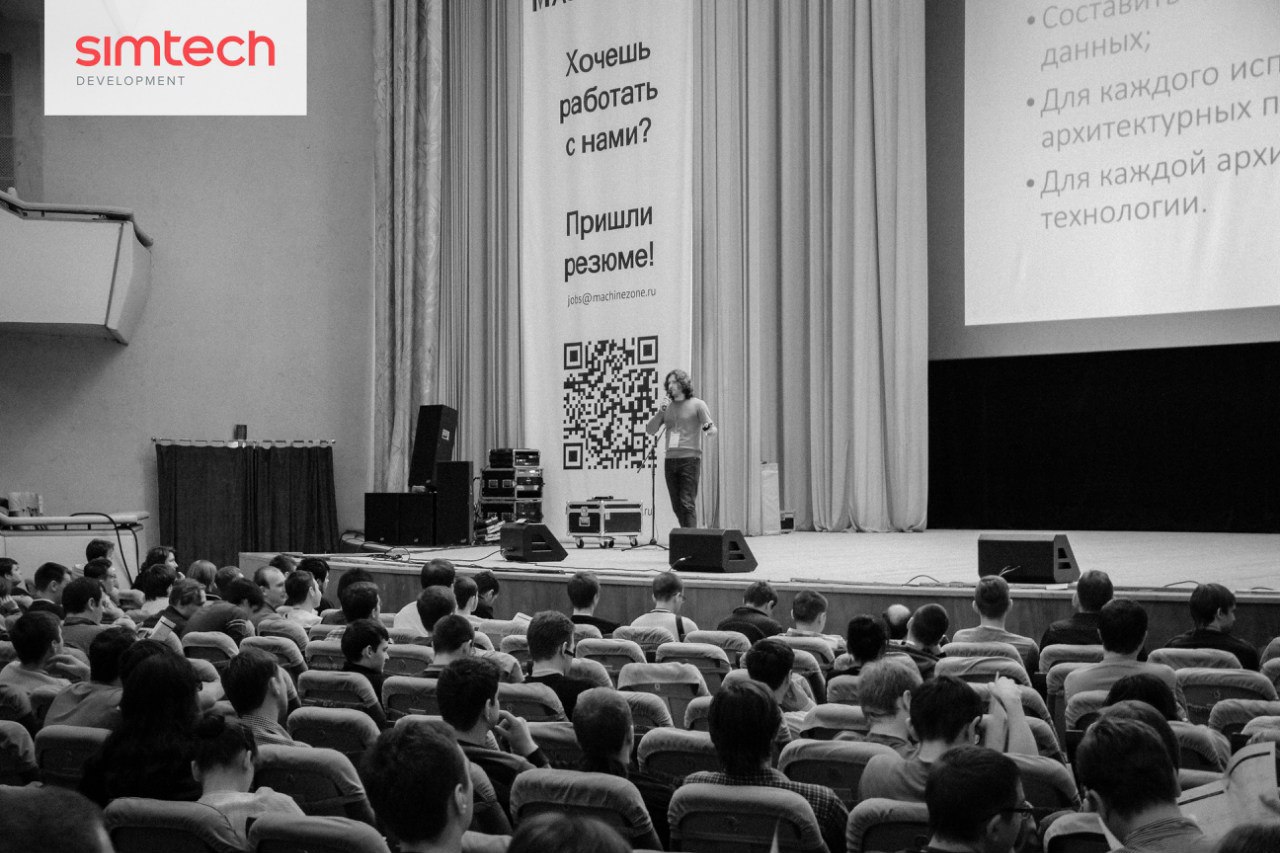
We went over the issues of working with databases. Emanov Dmitryfrom FirebirdSQL talked about working with his database. Podolsky Daniil (Git in Sky) touched on NoSQL. Andrey Kumanyaev (Coub) made a devastating report on PostgreSQL.
We did not forget about the development of cloud systems, namely, about global cloud trends and the use of the cloud backend for mobile platforms. This was told by Vladimir Yunev , another guest from Microsoft, the company's expert in the field of web development and cloud technologies.
Futuristic mood was added by Alexander Rozhnov (Undev). He introduced Core OS, the future of cluster operating systems. The use of this OC is still a mystery, but perhaps in a year, already at the next "Strike", many reports will be devoted to this topic.
Anton Pleshivtsev , who was remembered by the participants of the previous “Strike” for an interesting report on the creation of the Aviasales.ru ticket ordering service, this time talked about the implementation of Natural language processing in the phrase parsing service. Now Aviasales.ru is able to search for tickets for any user requests.
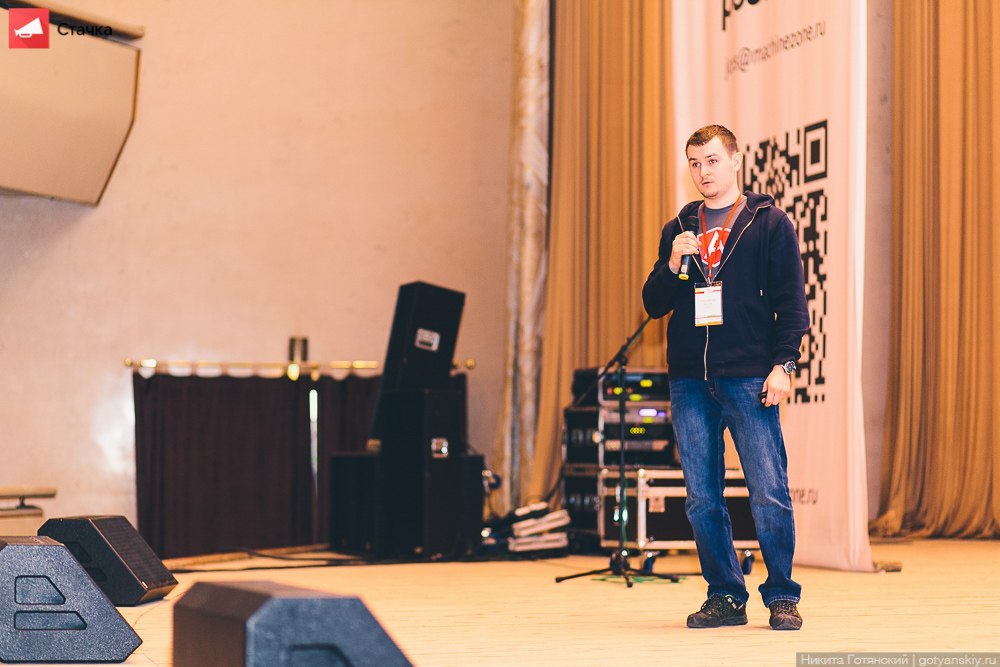
Pleased with reports on front-end development. For example, Andrei Sitnik from Evil Martians talked about the need to abandon preprocessors and switch to PostCSS. Timofei Chaptykov, a Novosibirsk colleague from 2gis, talked a lot about interface design and the use of active elements.
By the way, this year the mapping services were presented by 2gis, Yandex.Maps and Sputnik. The most curious, who reached the 4th floor of the Lenin Memorial, were able to get to the master classVsevolod Shmyrov and develop your own map of the game world using the Yandex.Map API.
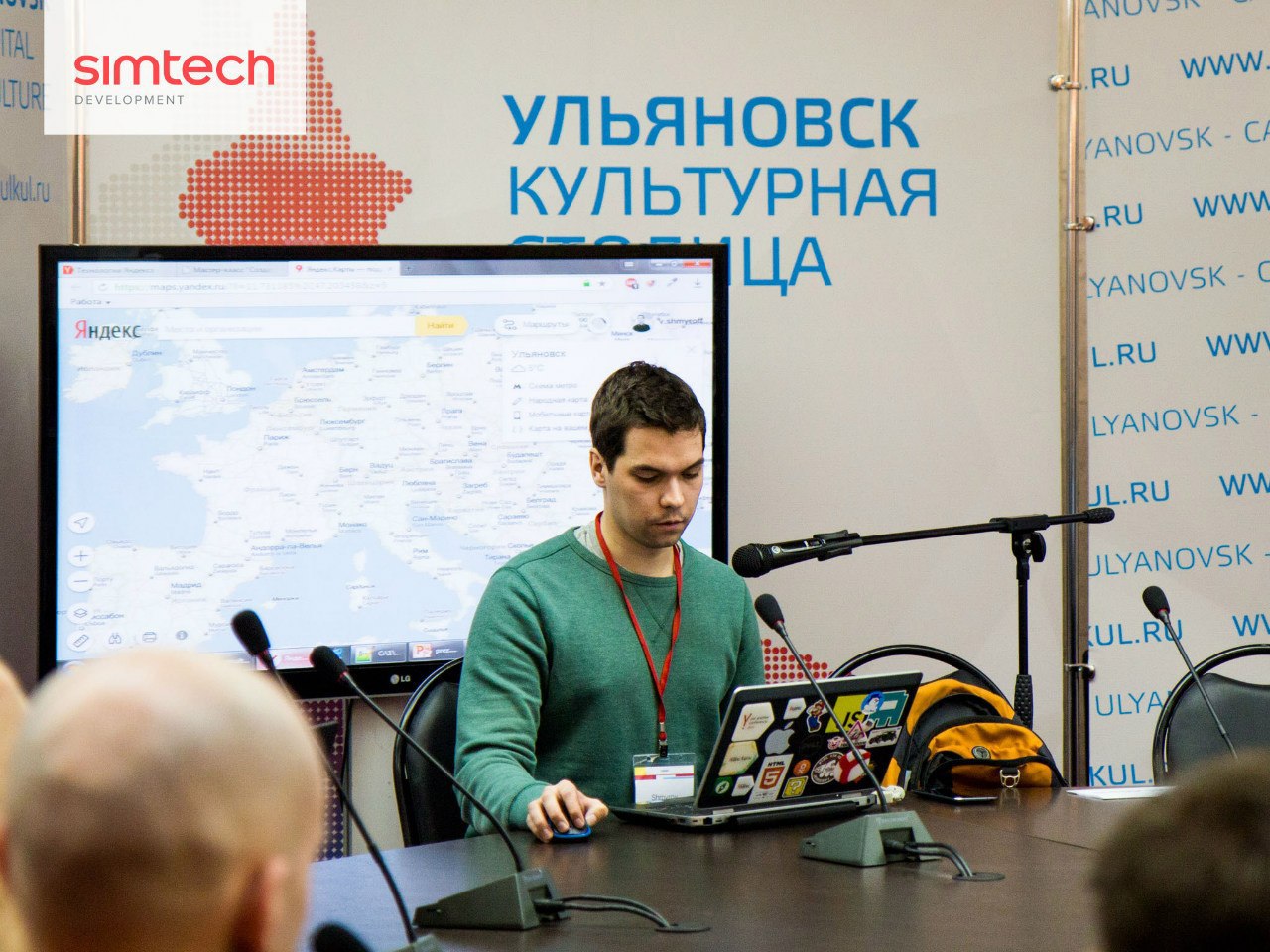
This year, information on testing, security, Arduino was added to the program. Alexander Serbul (1C-Bitrix) after the report answered questions for a long time. His presentation was dedicated to testing complex systems. After the story of Vasily Zhuravsky (FutureLab) about Arduino, probably even a child wanted to study it.
By the way, this year there were more children at the reports. This is not so much about schoolchildren (they became obligatory participants in the Strike), as about toddlers. IT industry is getting younger before our eyes :)
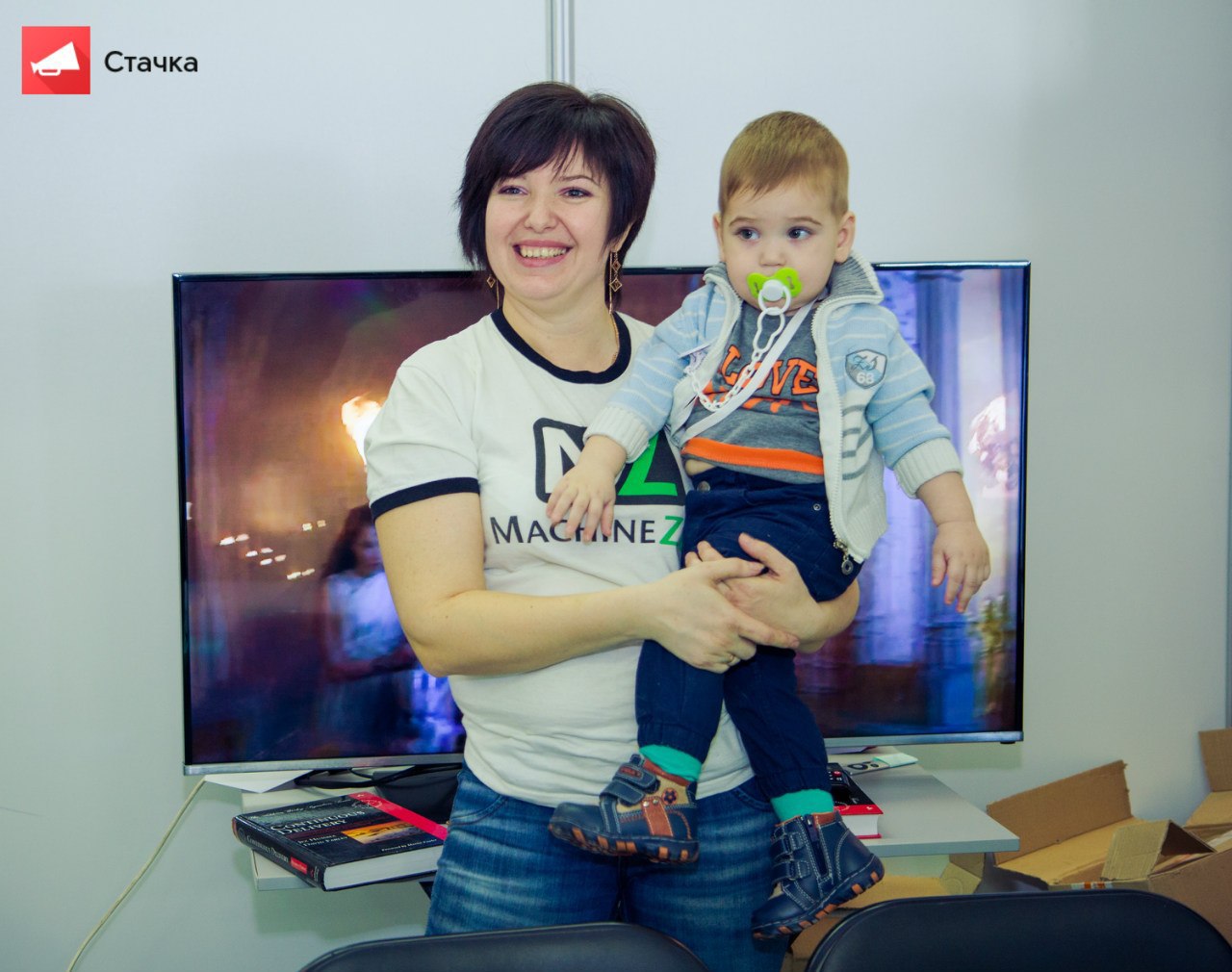
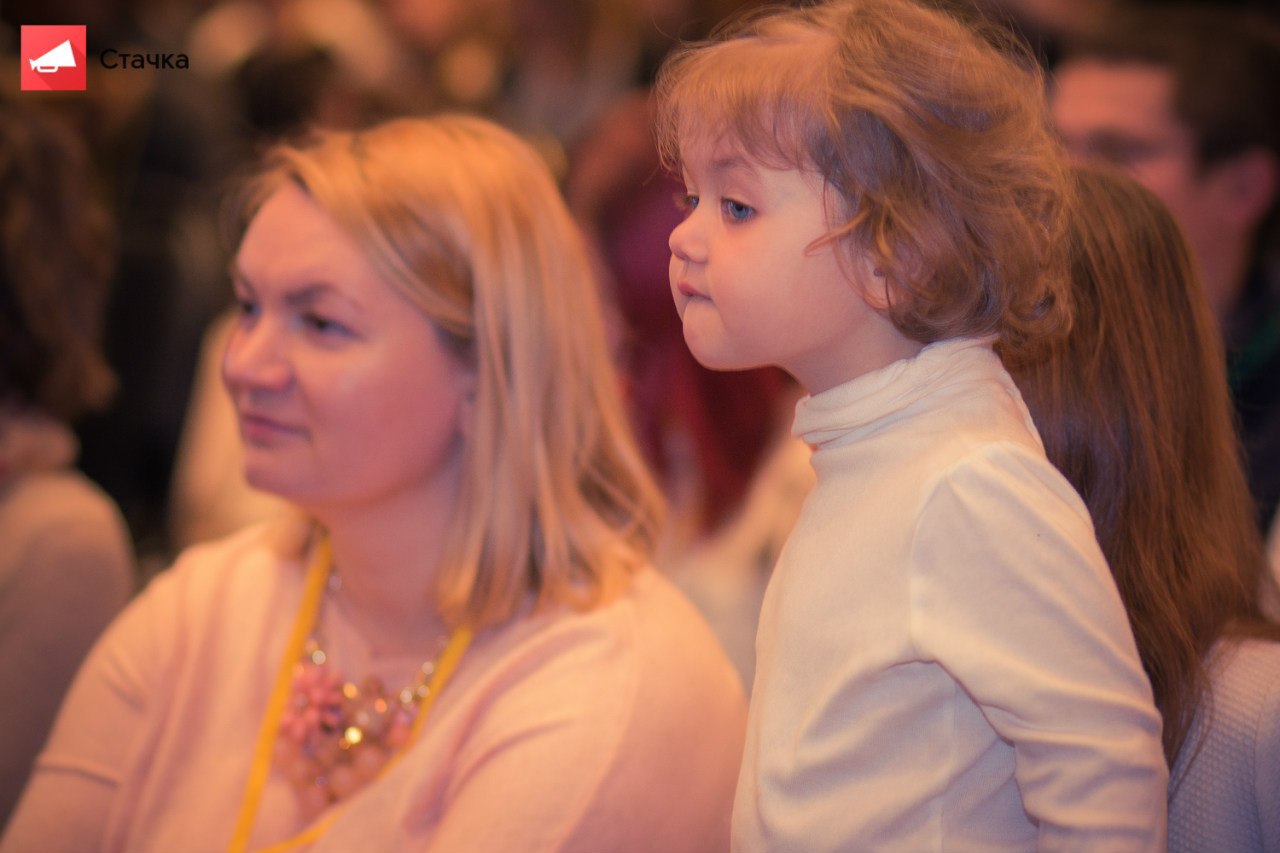
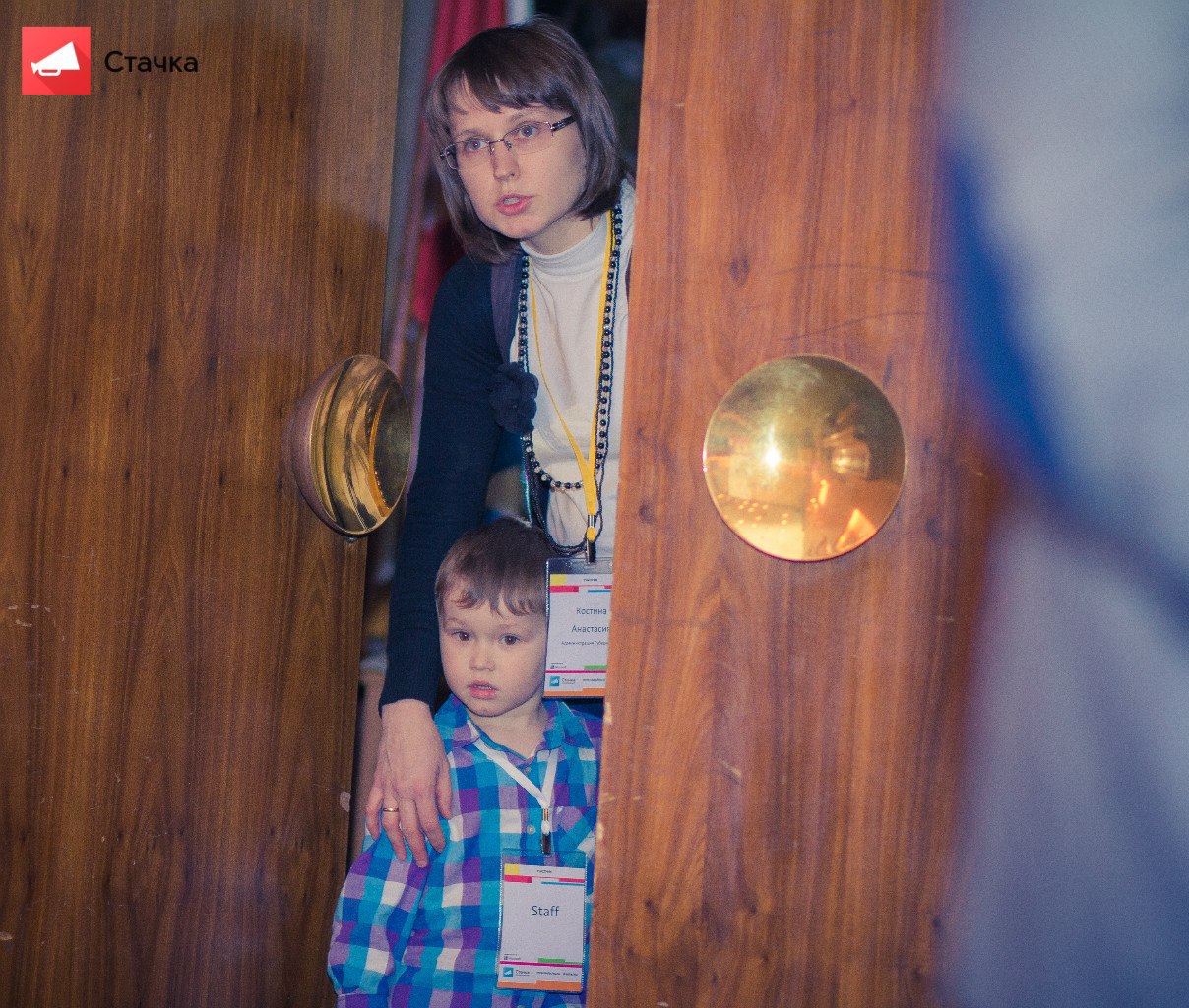
Management and IT education
The Management section is very close to the technical one. It addresses the issues of creating products, their scaling, project and team management.
A special guest in this section was Alexey Troshin (B2B Center). He came with a report about approaches that help to significantly accelerate development and successfully complete the project with absolute accuracy. These are factors of planning, technology, psychology, presentation, prioritization, and many others. Last year,
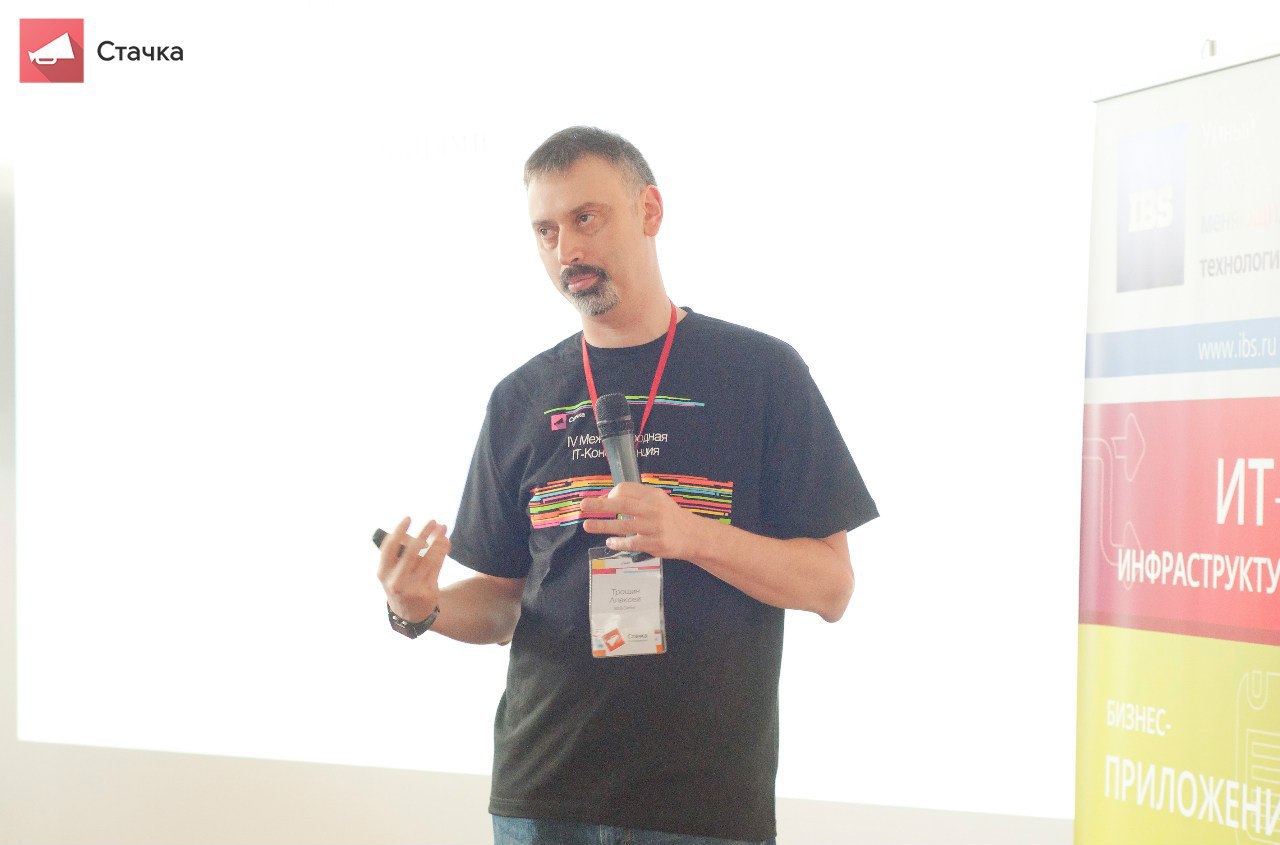
Mikhail Tabunov talked about his experience managing a looped Coub video service in the face of rapid growth, and in this he brought a report on the rules of an excellent developer.
We also talked about the experience of creating services and companies. For example, Askar Rakhimberdiev(“My warehouse”) talked about the development of a cloud service. And Dmitry Voropaev from Trilan shared his story of founding a company without initial capital.
The "strike" is visited by business angels. Where else can you find so many burning eyes and fresh ideas? Daria Komarkova , CEO & Founder of the Moscow State University Business Incubator, put all the sources of project financing on the shelves, suggested how to choose the right one and answered the questions of young startupers for a long time after the report and handed out business cards. She promised to come next year.
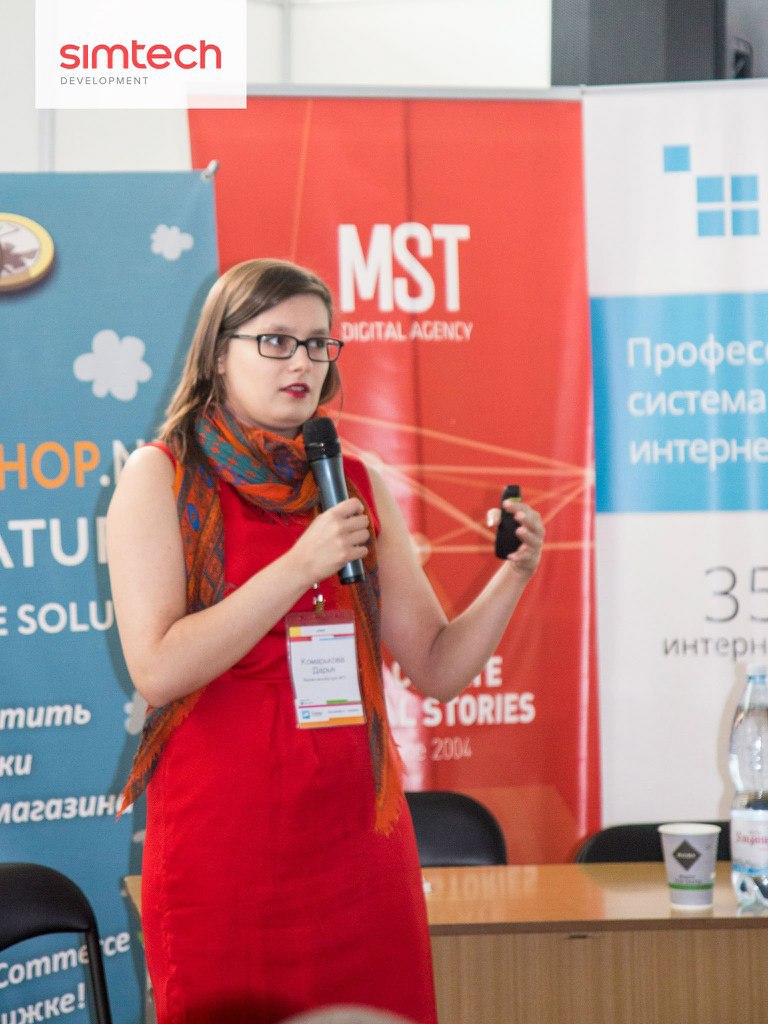
A cross-cutting theme at the Strike was information technology education. Employees in the IT sector are sorely lacking. Personnel hunger hinders business development. The problem is solved through close cooperation between companies, universities and schools. Companies formulate requirements for future specialists, universities graduate more qualified and demanded personnel, and schools provide a continuous flow of applicants to the necessary specialties, involving students in IT from elementary school. This should look something like the ideal IT staff development scheme in Russia, discussed at the round table “Problems of IT education in a crisis”.
The parade was led by Oleg Vlasenko, Chief HR Officer at SimbirSoft, Lecturer, Department of Information Systems and Technologies, Ulyanovsk State Technical University. To gather representatives of three parties in one place, he organized a separate direction within the "Management" section.
Here made Victor Nehoda , the legendary teacher Fisto UlSTU, how to attract talented students of schools in the IT-sphere.
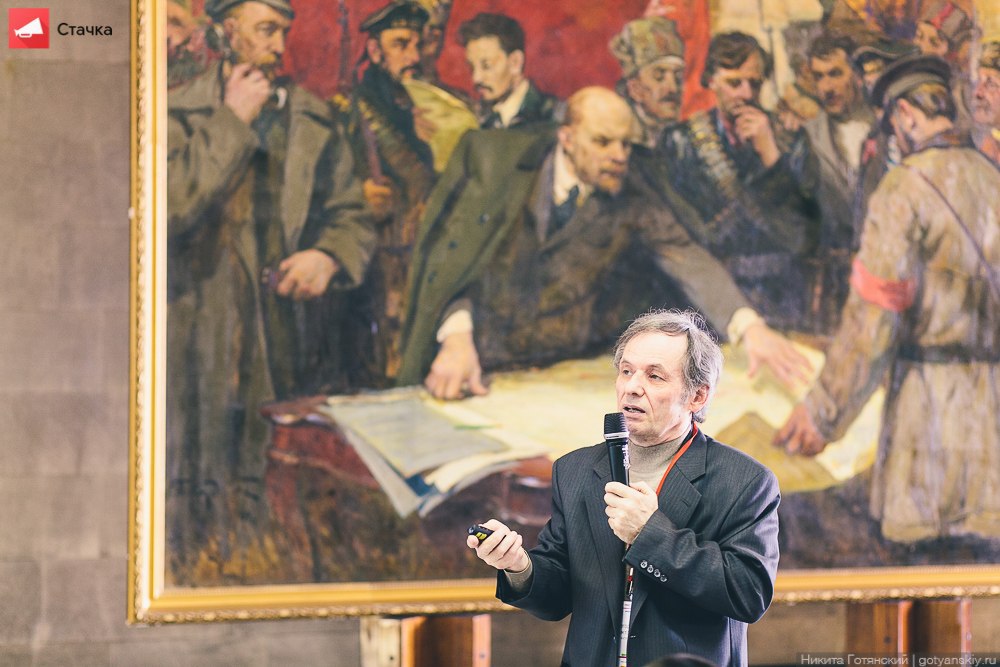
The prospects of school informatics were discussed. Guest from the Ministry of Communications of Russia Anton Korenyushkin spoke about the current state policy in the field of IT education.
Mobile Looking Glass
The curator of the mobile section, Elena Stolbova , CMO Atlantic Corporation, prepared 17 reports for fans of the development of mobile applications and games. The section focused on mobile application management.
Andras Gusti , the head of the Behemoth-Behemoth studio, arrived with a provocative report, “Ah, juzstori, heartless f * ck”. It’s already clear from the name that it was about usstory as the fundamental principle of creating the design of mobile applications: how to kill a project without creating a usstory, what are user cases, when are they needed and how to do them correctly.
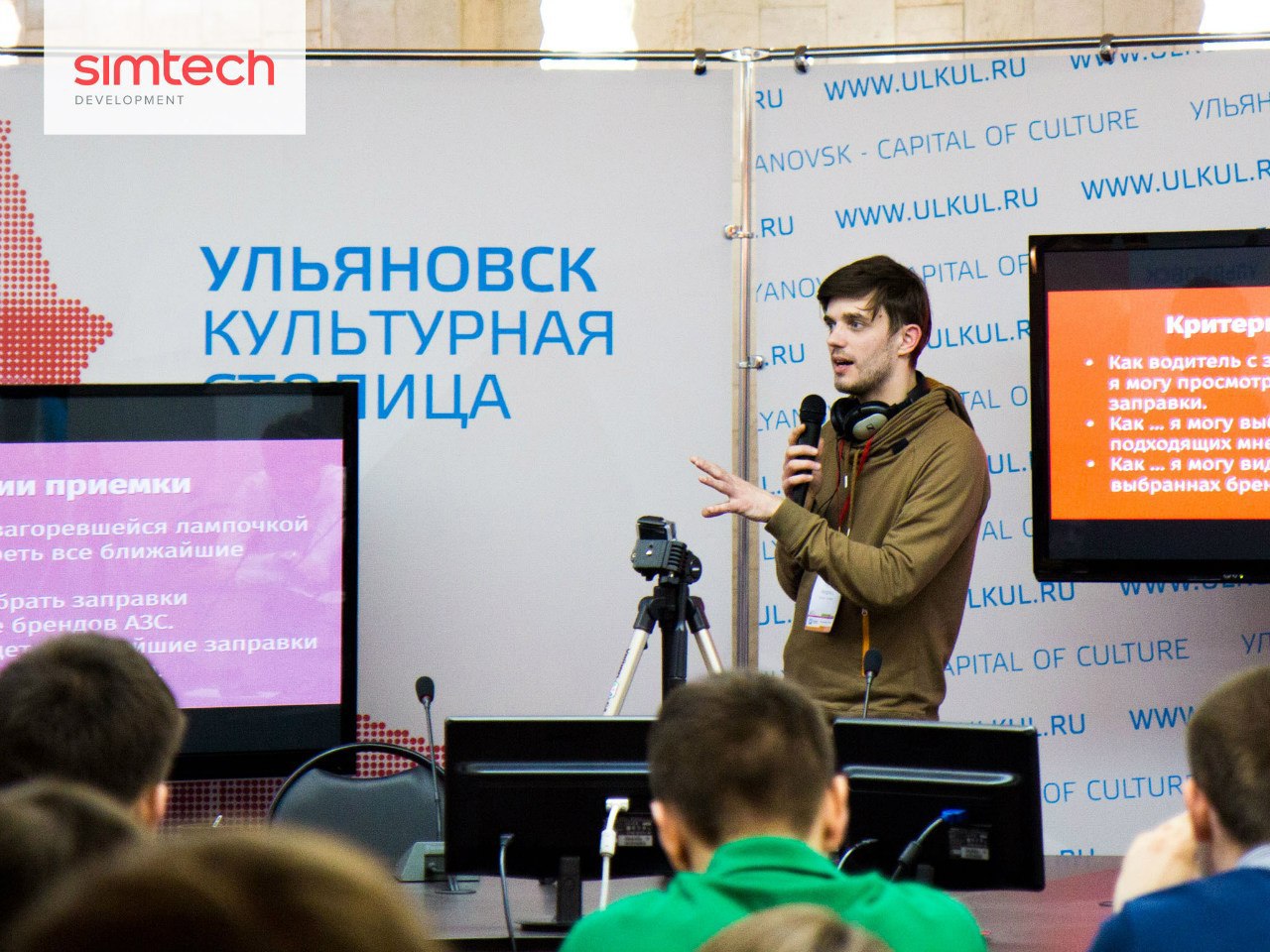
Not without success stories. If you attended the report of Maxim Mikheenko, art producer at FOX3D Studios, you now know how to get to Steam. He talked about the main stages of the development of the Subnautica project, which was awarded phishing and first place in the ranking of new games in the Early Access (Steam) section. Kravtsova Maria , Indie-developer, gamewriter at Message Quest, shared her personal story on developing a zero-budget game.
What happens with iBeacon was touched by Sergey Kolpakov , Bunch's sales director.
Separately, it is necessary to note the master class "Journey of the Hero" from Ilya Kurylev, founder of Gamification Now! He considered how to design a landing page, service, product or even an advertising campaign in order to maximally engage the user in the project and invisibly lead him to the target action.
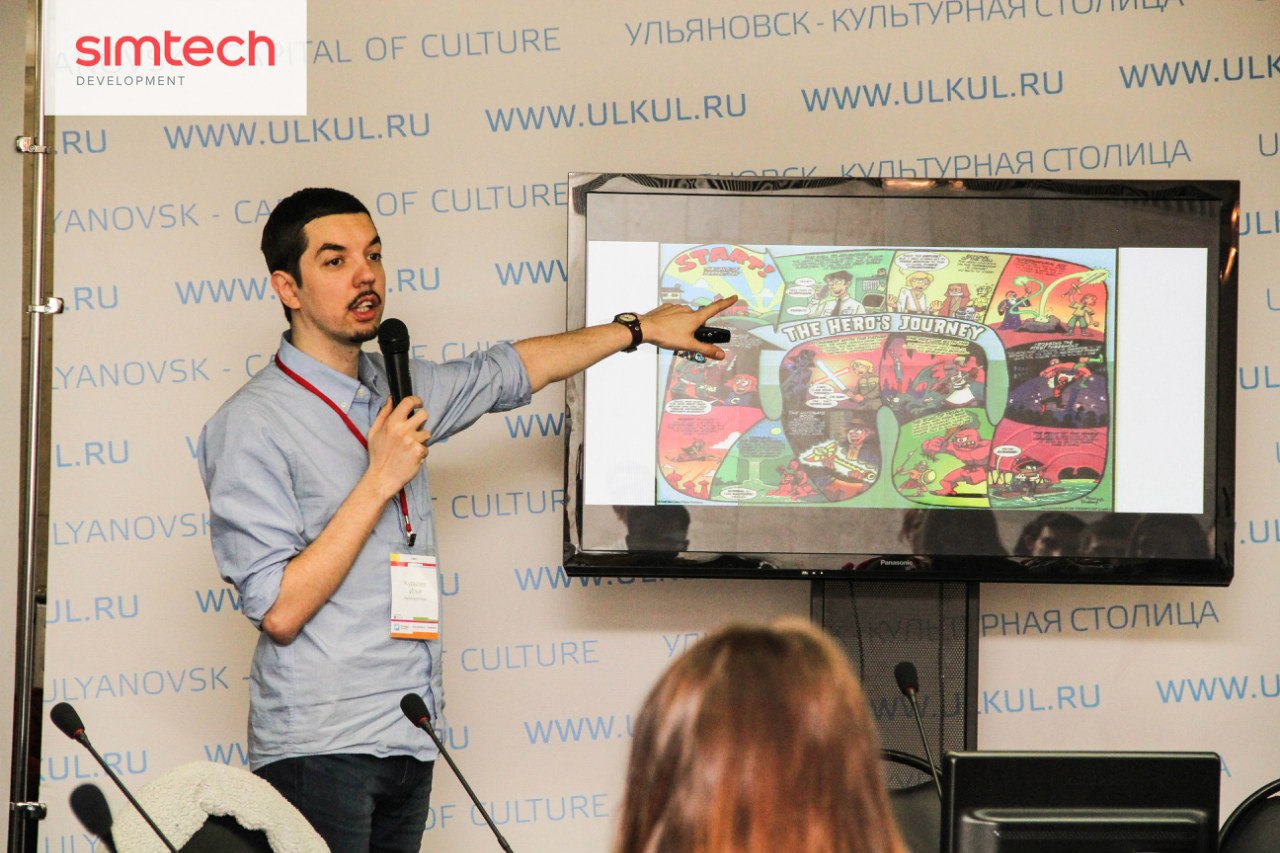
It is impossible not to touch on technical reports aimed directly at developers. Ivan Chashkin , the team lead of the Mail.Ru Group mobile development team, spoke about the bottlenecks in the development of mobile applications. Andrey Kulakov , team lead Undev - about the NativeScrip framework for writing mobile applications with native JavaScript UI. XiMAD developer Alexey Klyuchnikov - how to get rid of persistent database dependencies in mobile games.
100% natural e-commerce
Who will tell better about e-commerce than the owners of real online stores? Camille Kalimullin , section curator, general manager of AdvantShop.NET and co-organizer of Strikes, invited online store practitioners from the 100% natural e-commerce case club. The section grew 2 times and became at least 2 times more interesting.
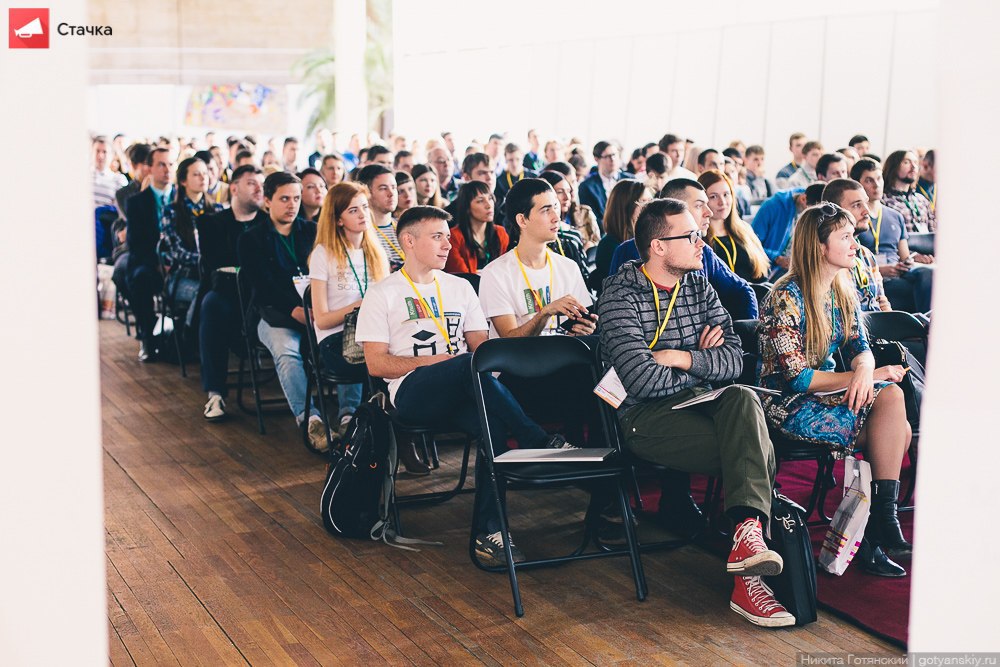

If you are involved in the development of electronic business, you should definitely listen to Guy Karapetyan , Marketing Director of RealXenon.ru. This time he talked about the most important metrics of the online store: the cost of attracting an order (SRO) and the number of orders for this CPO. Also about analytics was an interesting report by Yuri Batievskyfrom Antop. Listeners attacked him with questions on the subject of call recording and call tracking. Apparently, this topic in terms of analytics turned out to be the most relevant.
The organization of the call center was related to the report of another e-commerce practitioner Mikhail Semenkov , co-owner of the projects lilitop.ru, toybunch.ru, azhelp.ru. Since the main competence of the online store is sales, it is very important to have an internal contact center, and not to outsource this function. Olga Zagoskinafrom Boffo Boutique supported the idea and continued it: “Sales scripts are a method that does not fit the online store very well. Scripts are needed for active sales and resales. But when a customer makes a purchase through the site, he no longer needs to sell anything. Now the main task is to make it pleasant for the customer to return to the store. My personal record is 40 minutes of continuous communication. By the way, it ended with an order for 40 thousand rubles. "
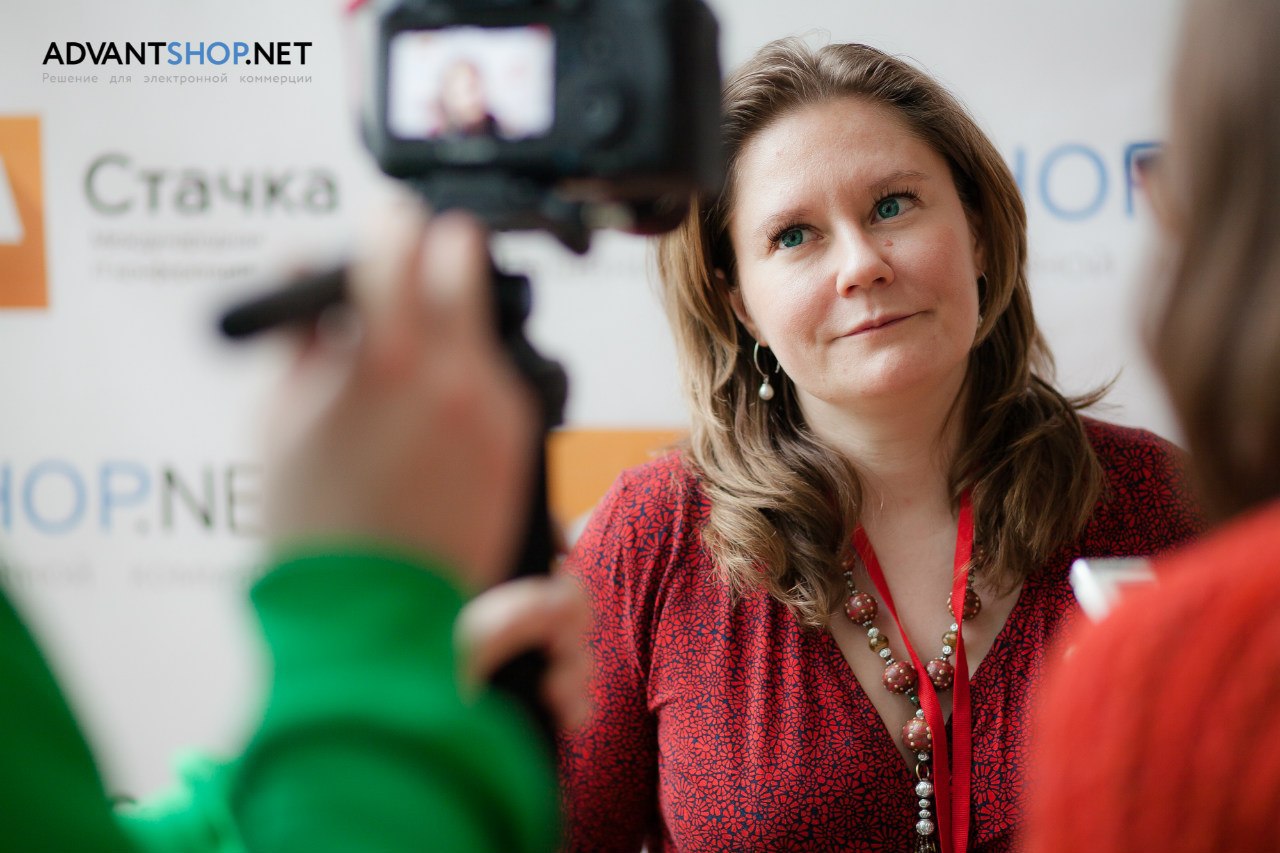
The whole truth about e-mail marketing in e-commerce and its own triggers was told by Vitaly Shakhmatov, marketing director of the online cosmetics store Pudra.ru.
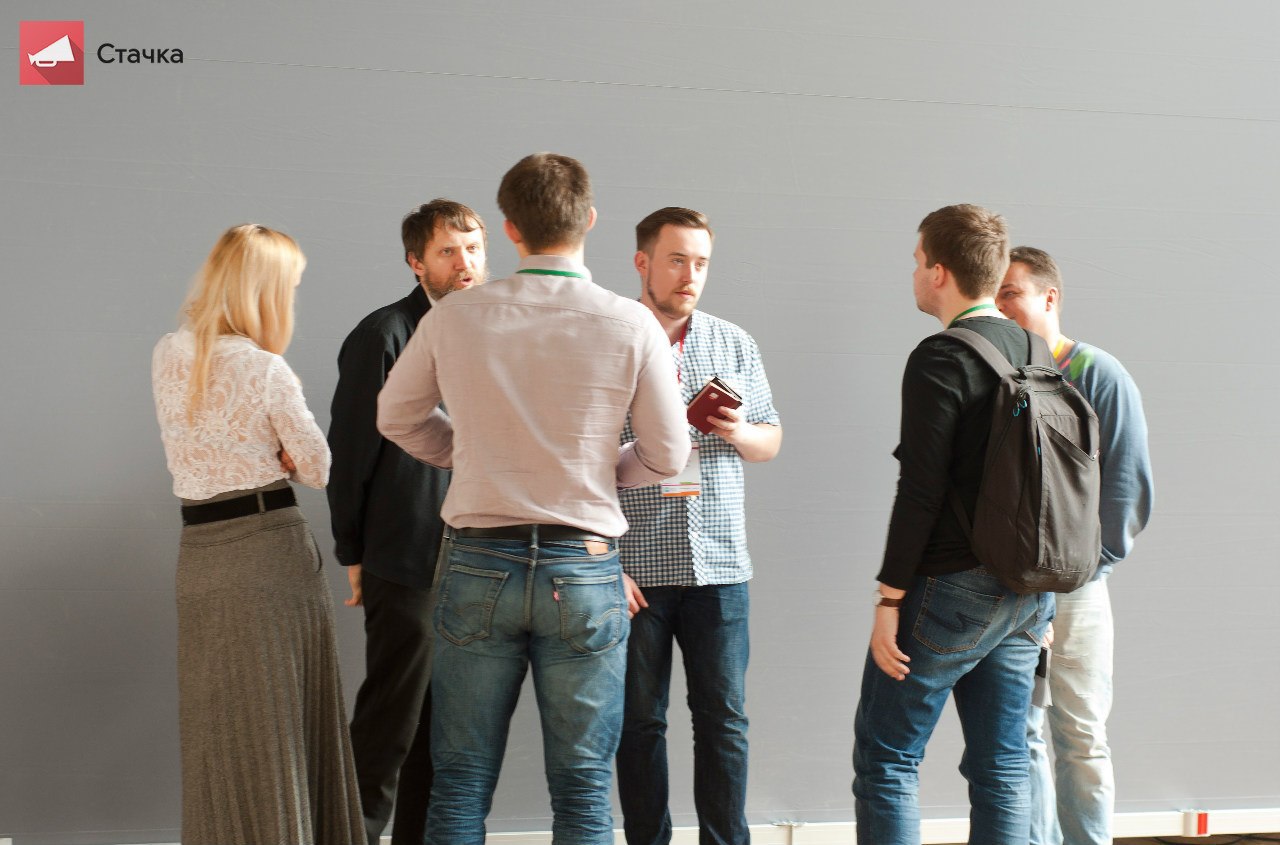
Sergey Egorushkin(Plumbing-on-line.ru) organized a talk show with the participation of section speakers. They discussed the economics of the online store: government regulation of the e-commerce industry and market self-regulation. It sounds boring, but in fact they went over the most urgent topics for any owner of an online store.
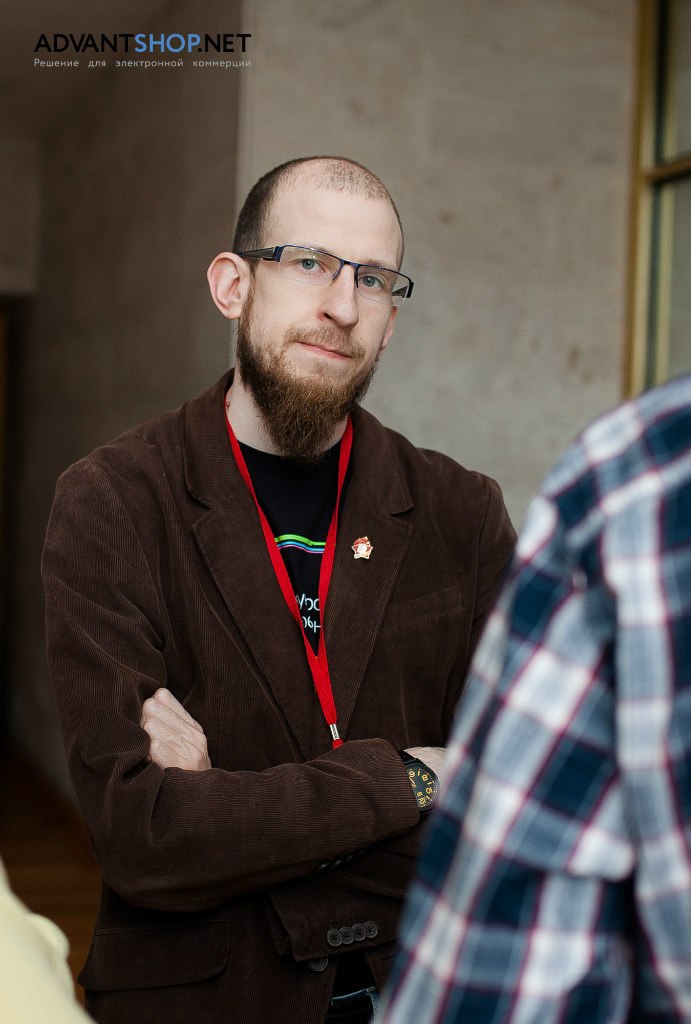
In parallel with the E-commerce section, AdvantShop.NET held its affiliate conference. The AdvantShop.NET team talked about how you can make money on the engine and what benefits the studio gets from a partnership with AdvantShop.NET.
They also prepared a large review of the E-commerce section with a detailed description of all the trends of e-commerce for 2015. Read the review on the AdvantShop.NET blog .
Lobby and informal communication
Why do people go to the strike for several hundred kilometers? Enlighten, listen to experts, and also, of course, talk, meet old friends, acquire new ones, establish business contacts in an informal setting.
A place where you could meet a lot of people at the same time is the lobby of the Lenin Memorial. An exhibition unfolded there, where, under the broken bits of Drum Pads 24, a couple of dozens of companies did their best to attract and entertain the audience.
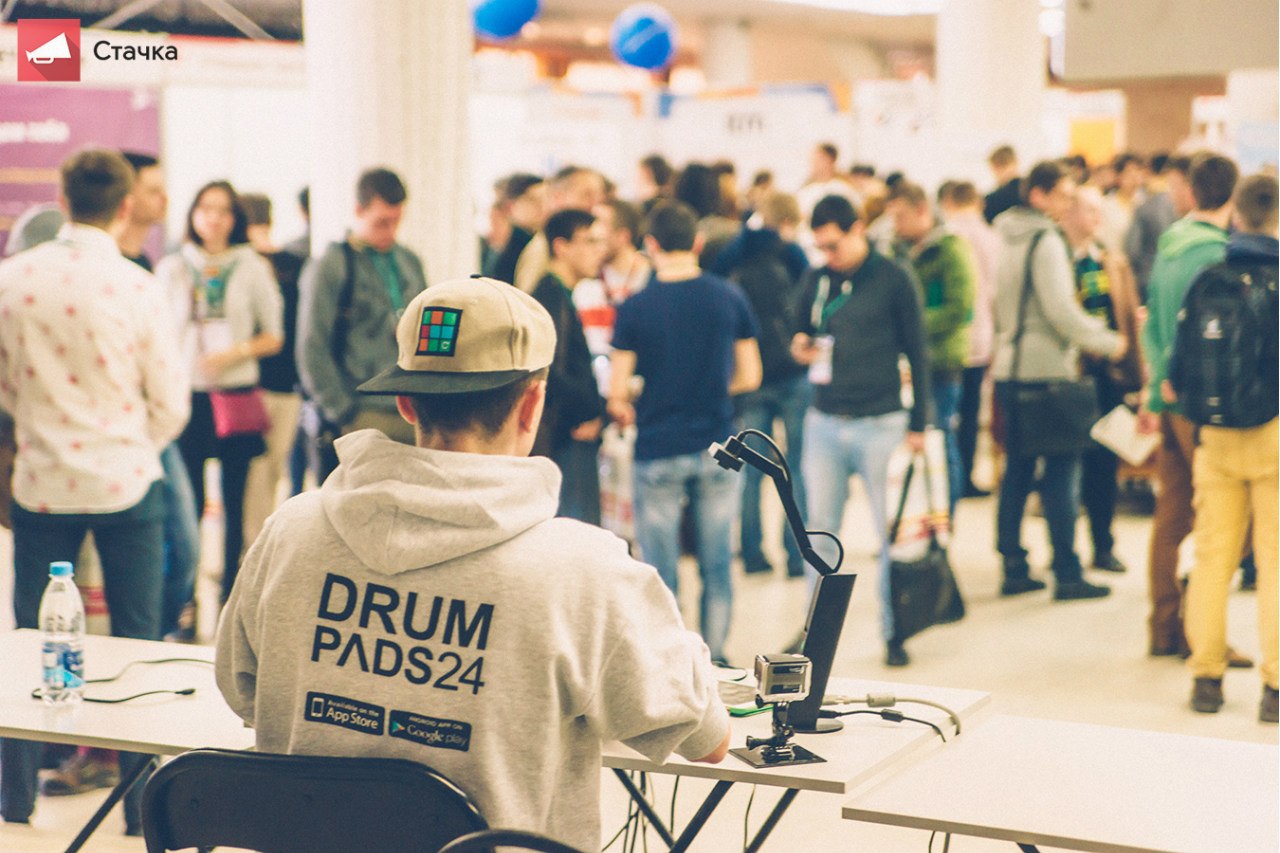
Aliens from outer space from SimbirSoft demonstrated their alien dances.
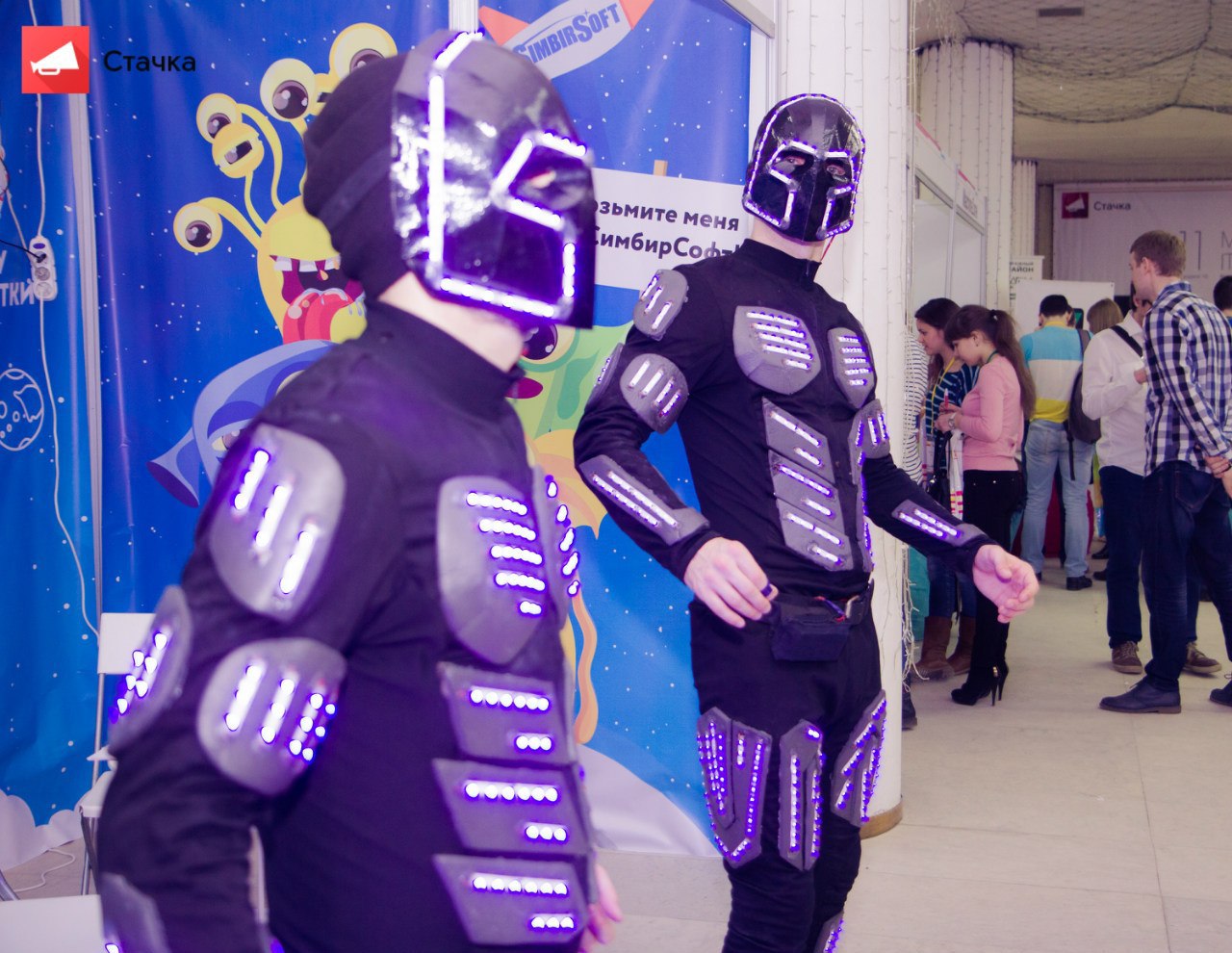
At the Microsoft stand, one could try on virtual reality.
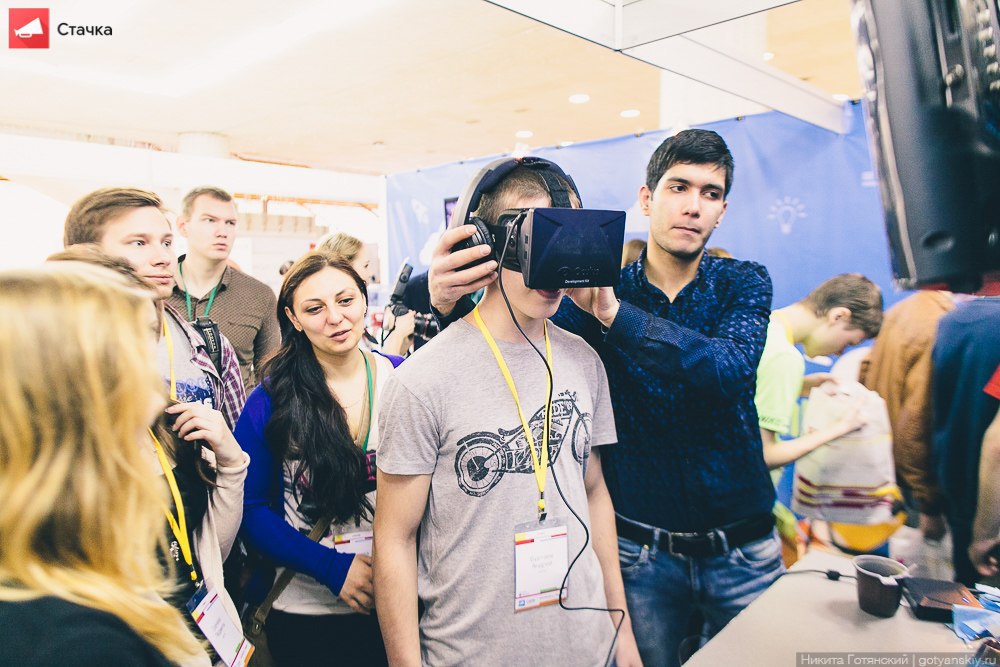
The competition at XBOX was held by Simtech and Mobirate.
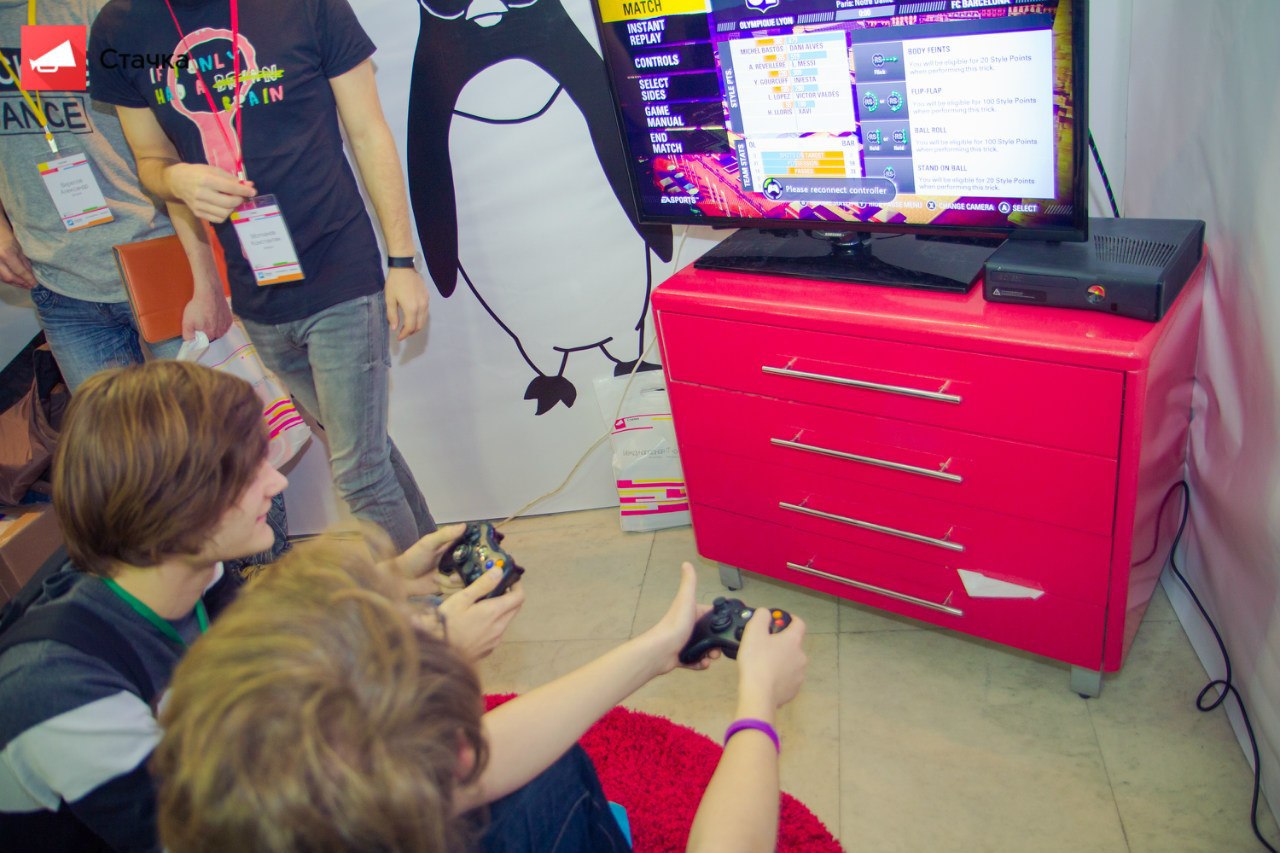
At almost every stand, prizes could be won: from one dollar to a phone or PlayStation.
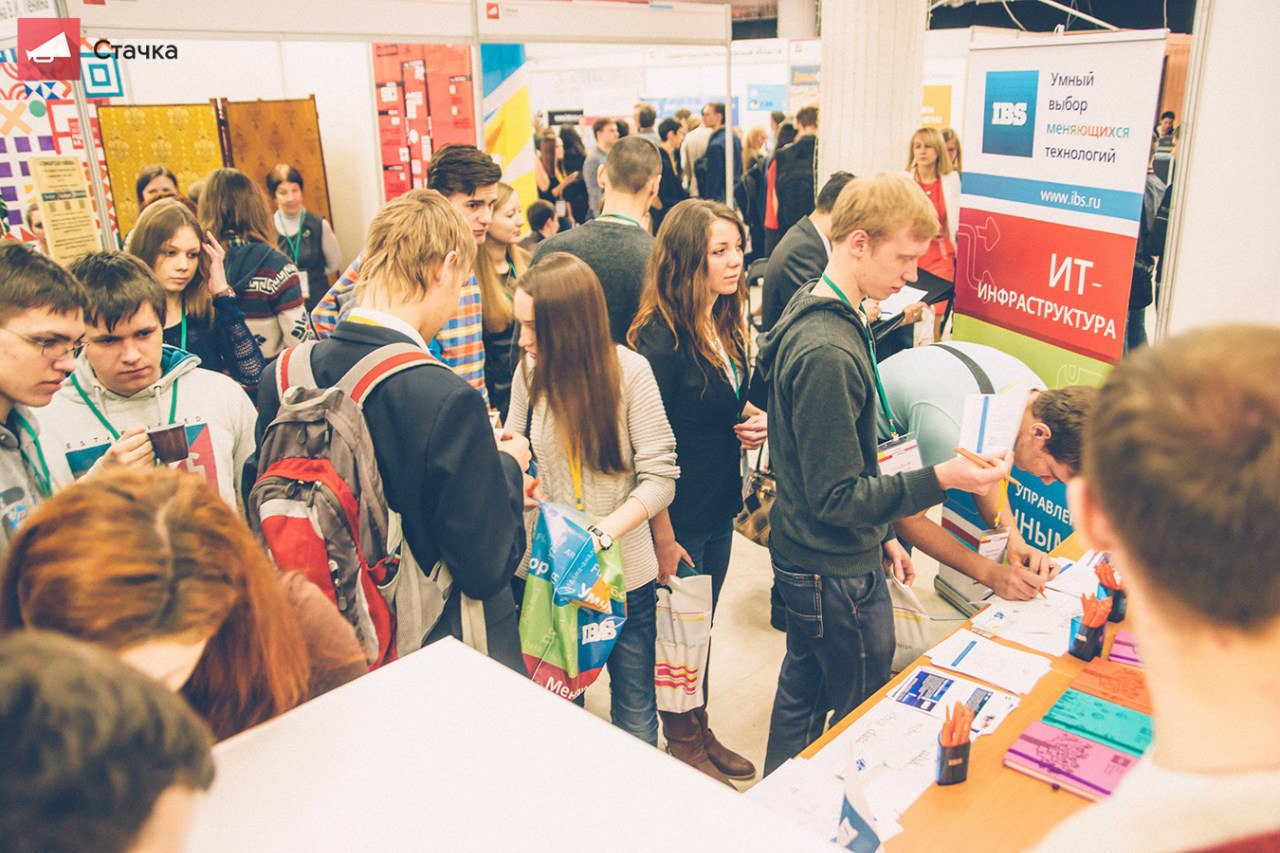
For those who like hot things, at the end of the first day a closed afterparty in the all-inclusive format was waiting for: live music, food, drinks, entertainment and unlimited communication. Maxim Osyagin, CEO of Argenta IT company and co-organizer of Strikes, was responsible for organizing the IT party. By the evening, more than 350 guests had gathered on the Veranda in Lenin Hills. However, we will not tell, see for yourself.

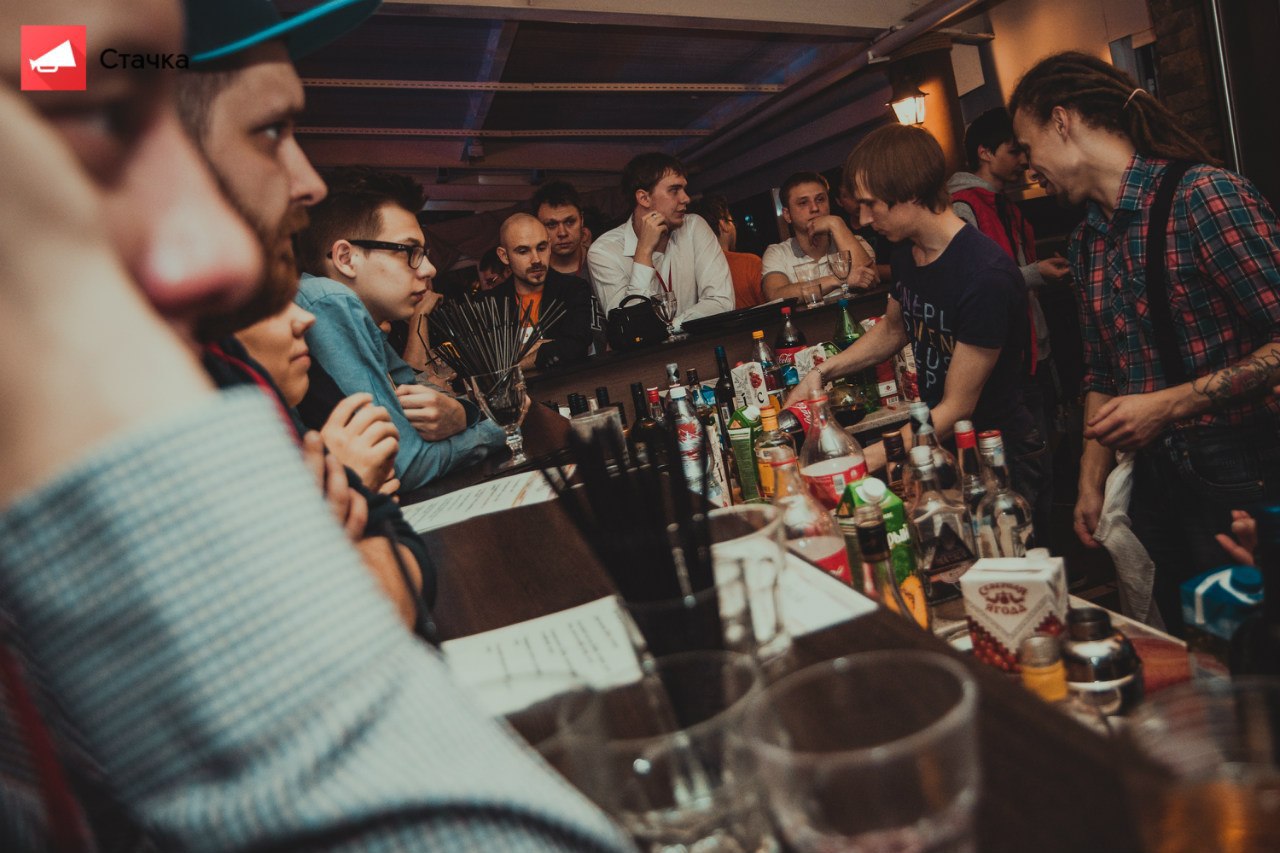
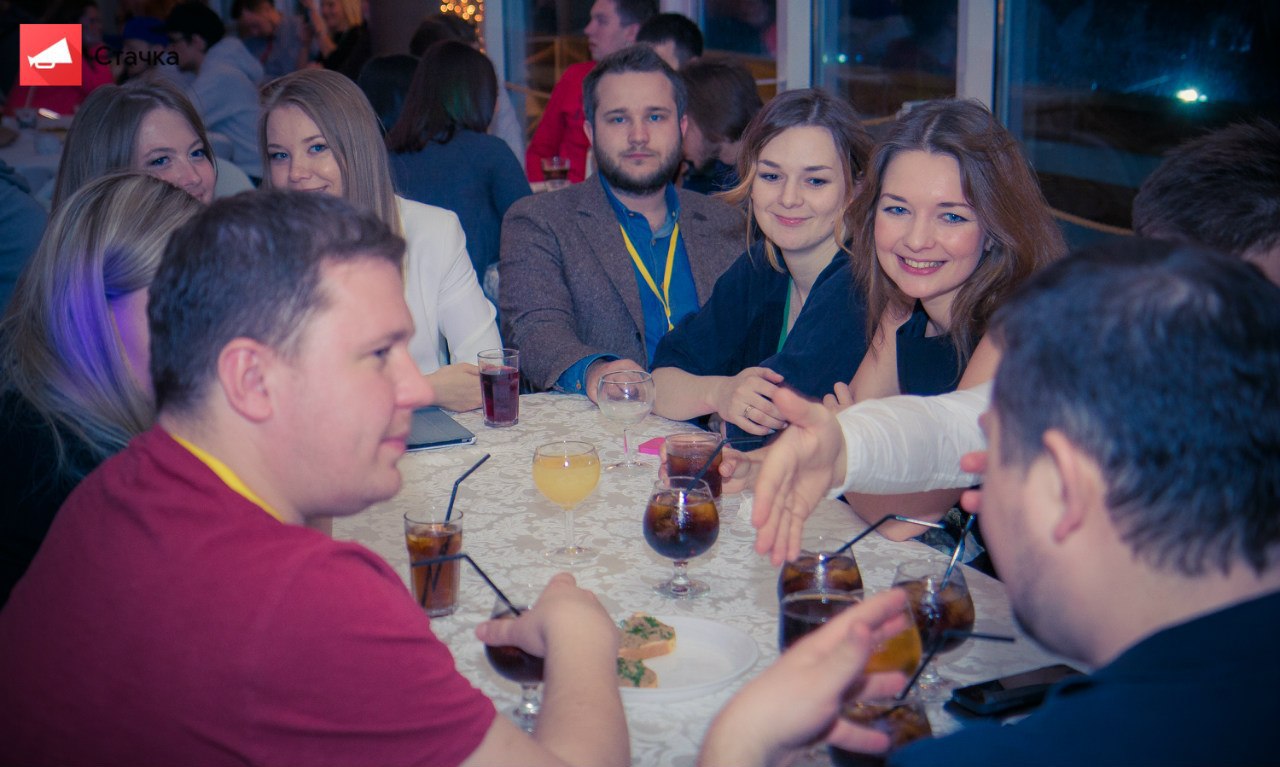
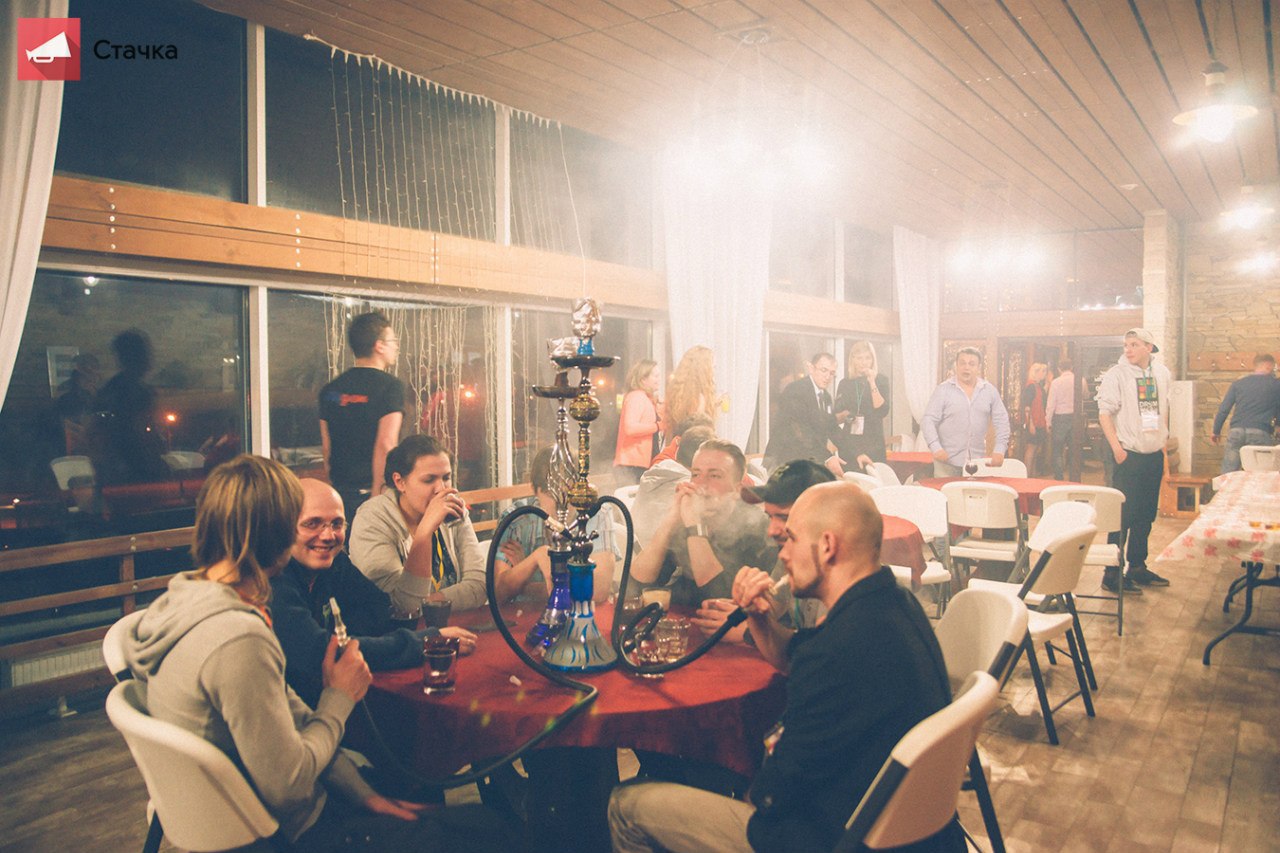
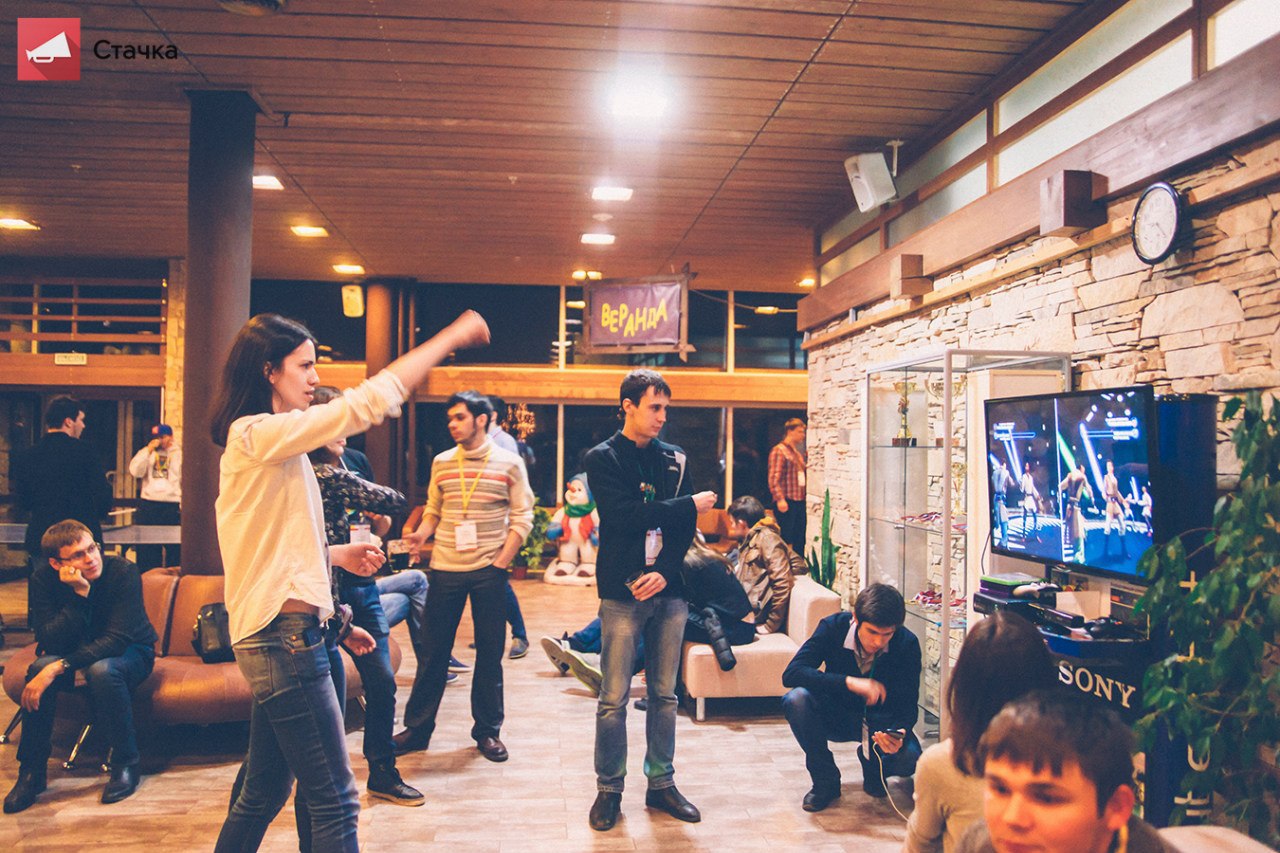
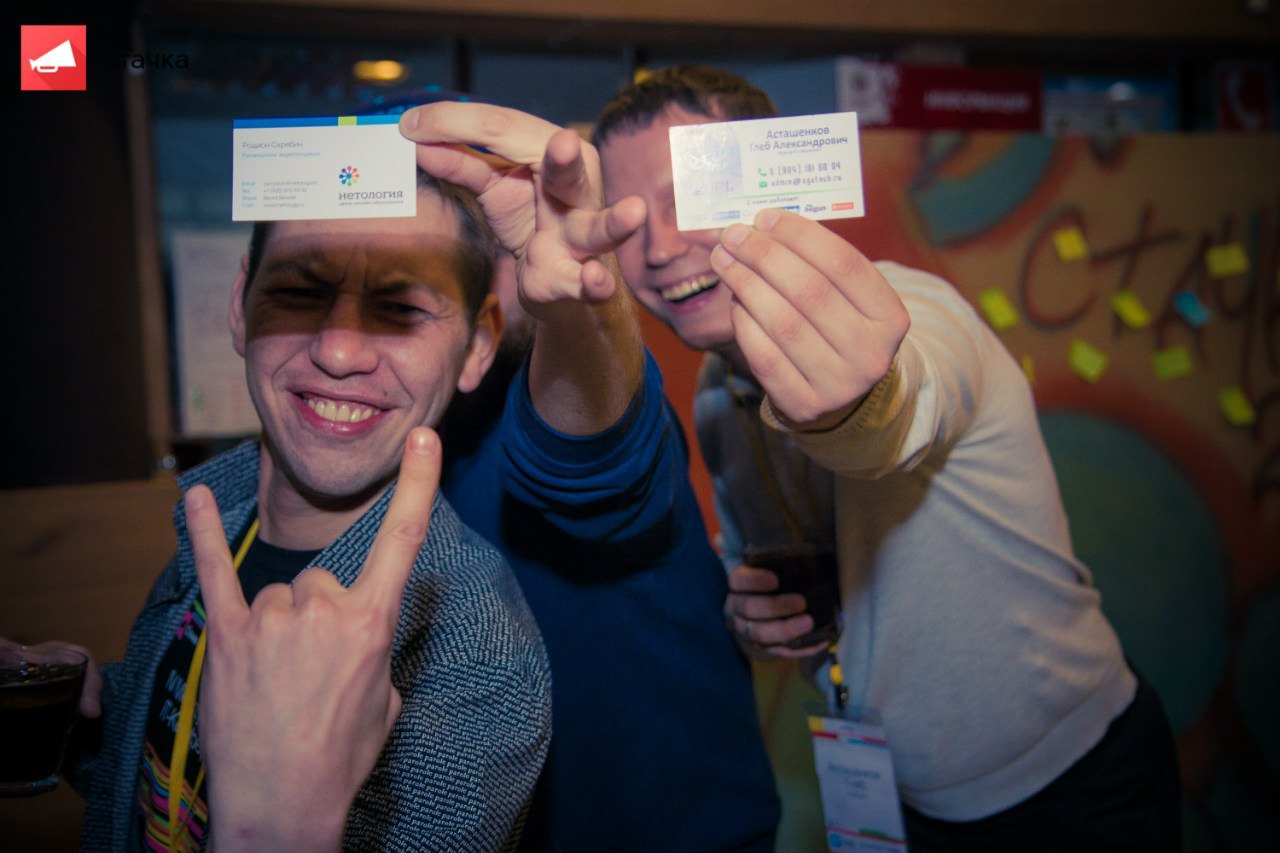
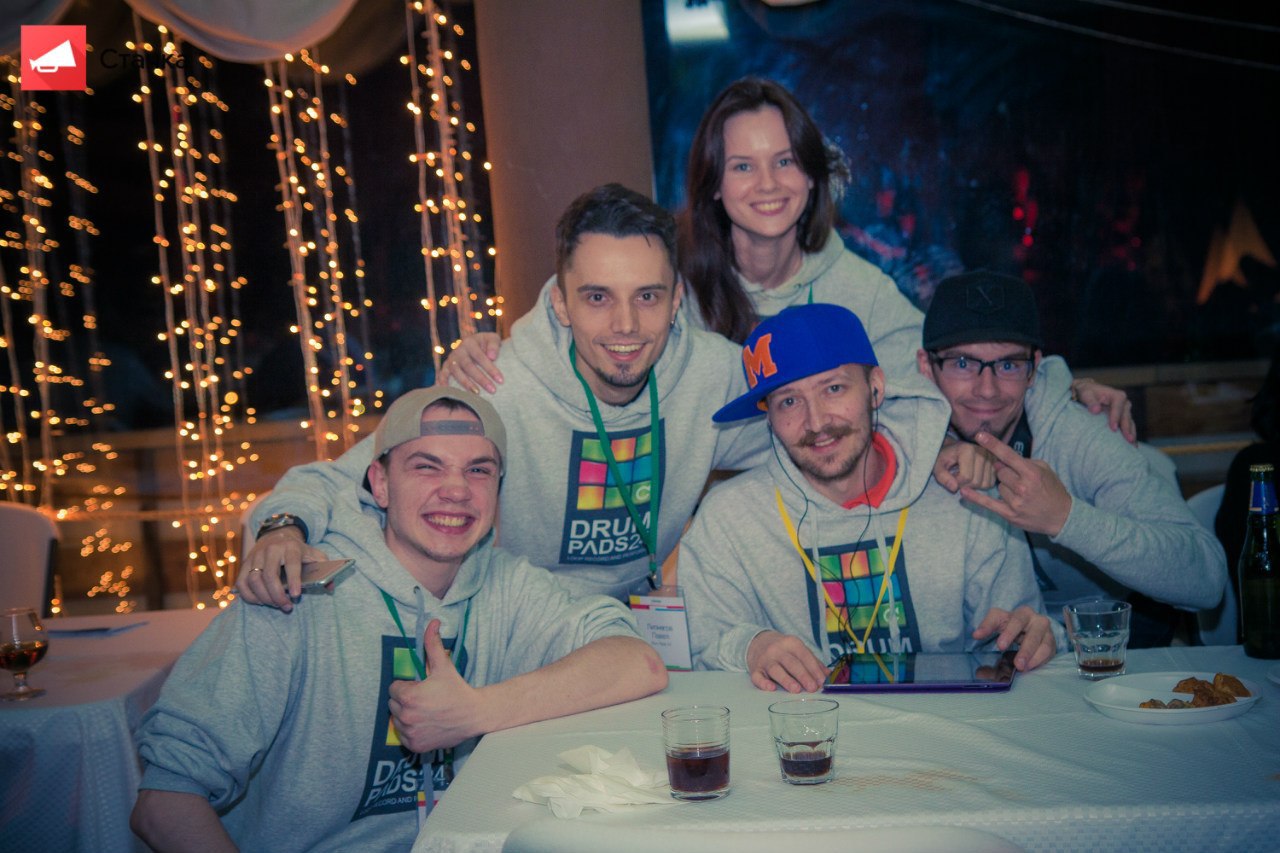
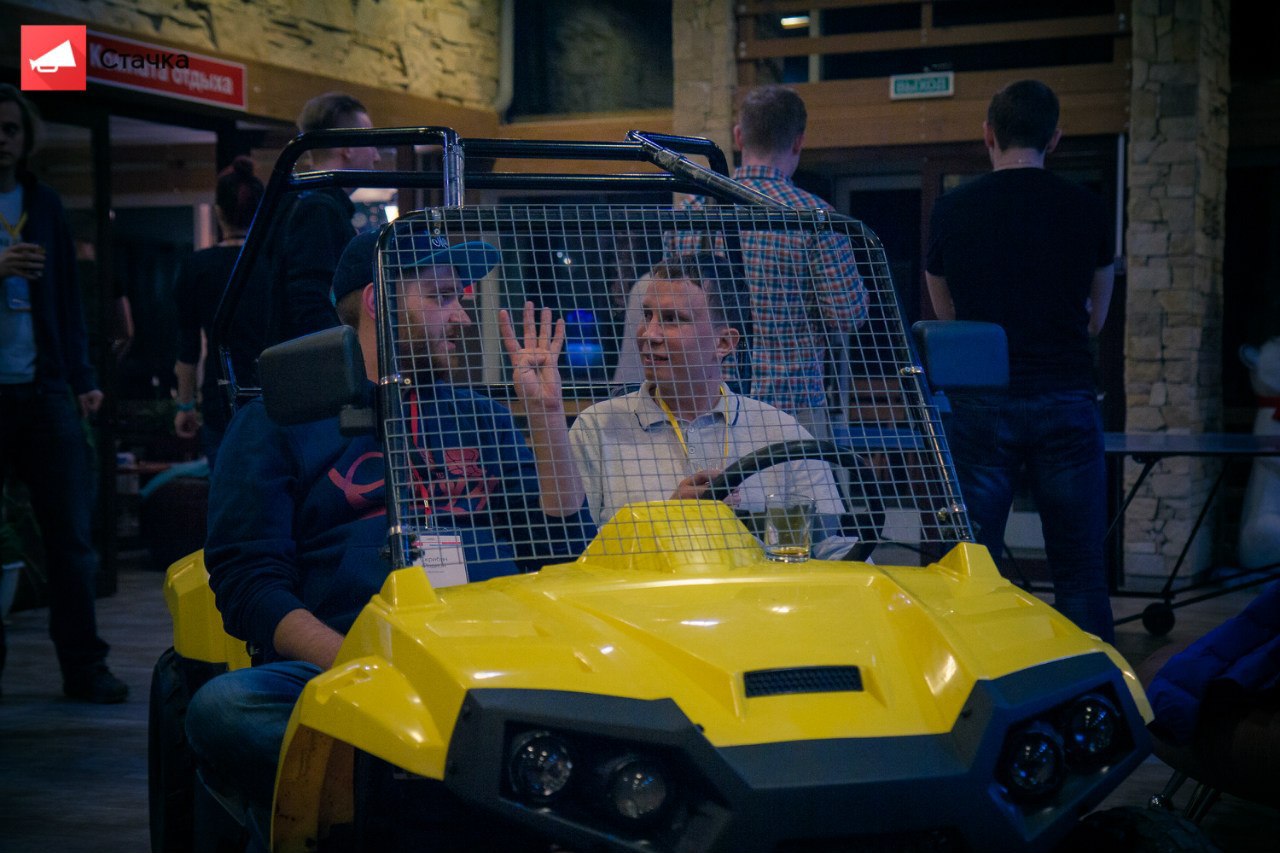
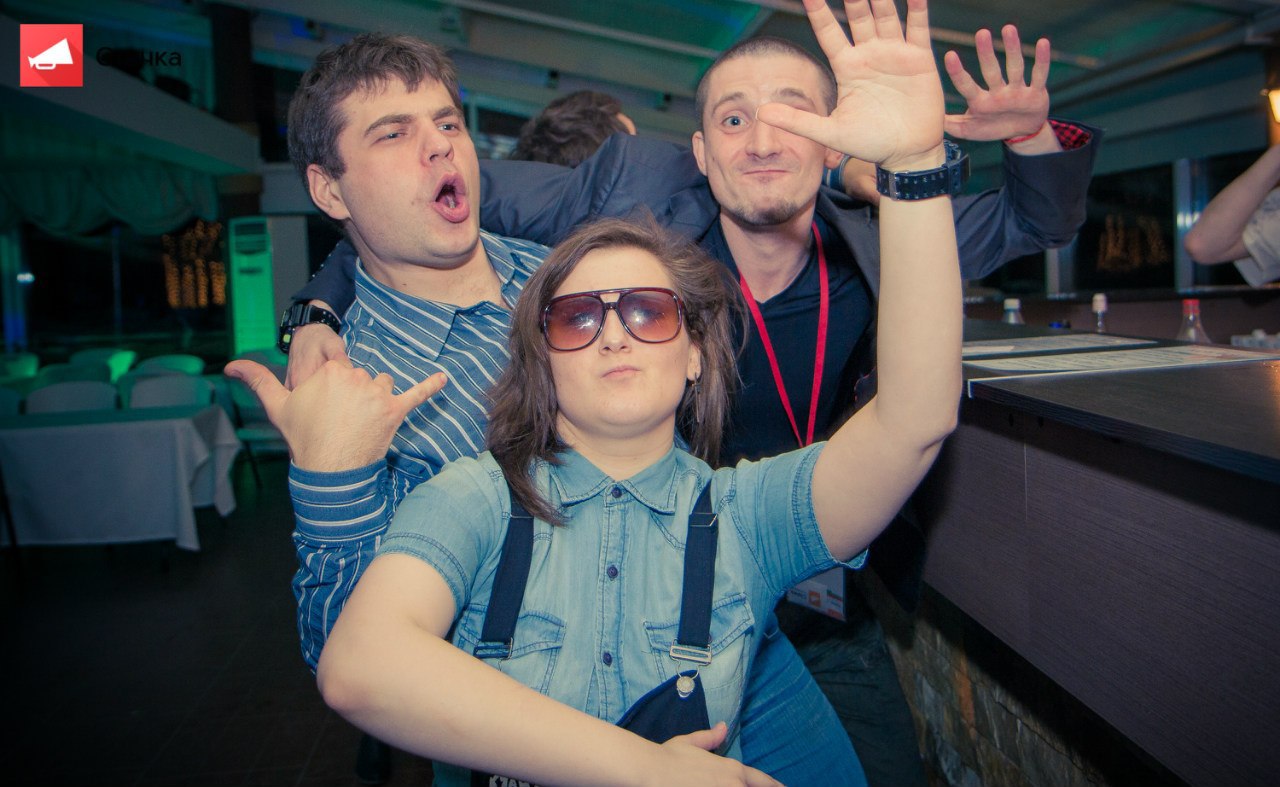
The atmosphere of "Strikes": high technology in the walls of the Museum of Soviet History
The drive from the atmosphere of the Strikes, the absence of metropolitan pathos, openness, warmth and a sense of unity were felt by all participants, even if they had come to the conference for the fourth time and knew what to expect.
Everyone who arrived at the "Strike" for the first time enthusiastically accepted the idea of holding such an event in the current museum of V.I. Lenin. And where else in the world can you listen to a lecture on programming languages surrounded by exhibits of Soviet history and busts of Vladimir Ilyich?
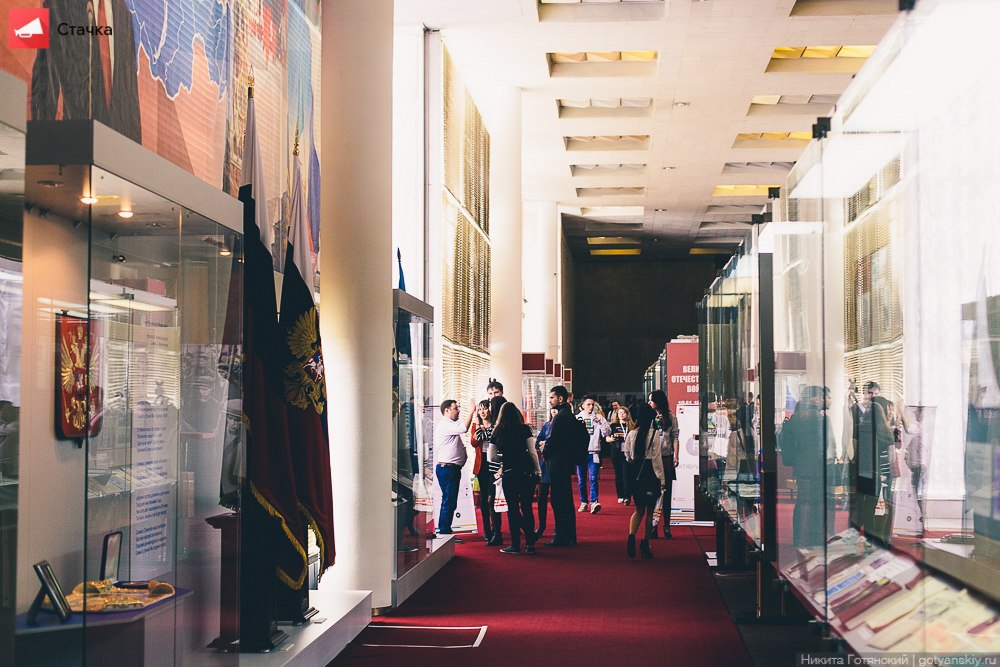
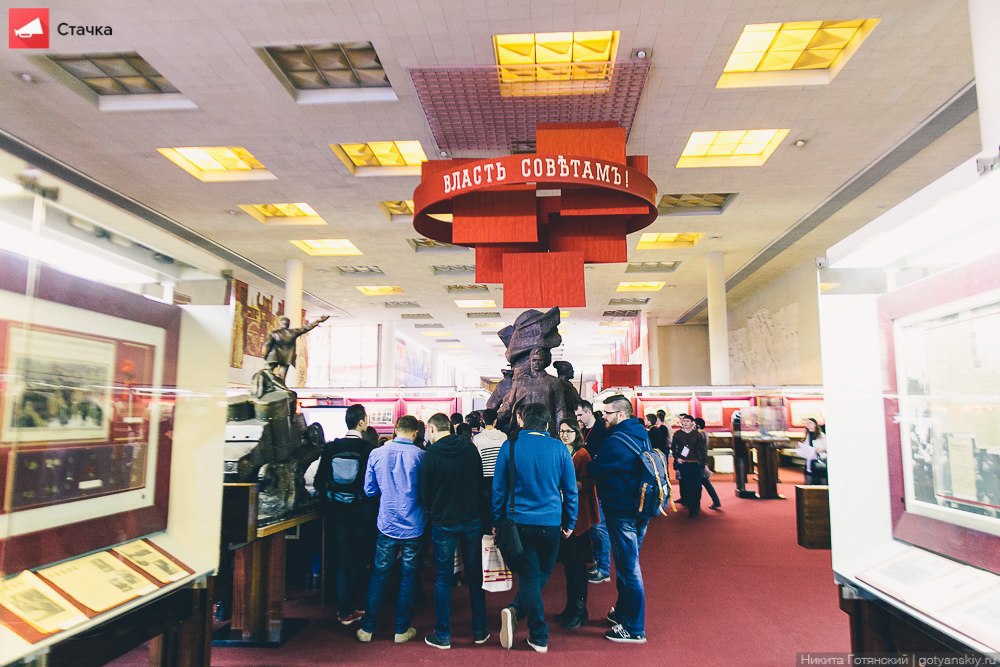
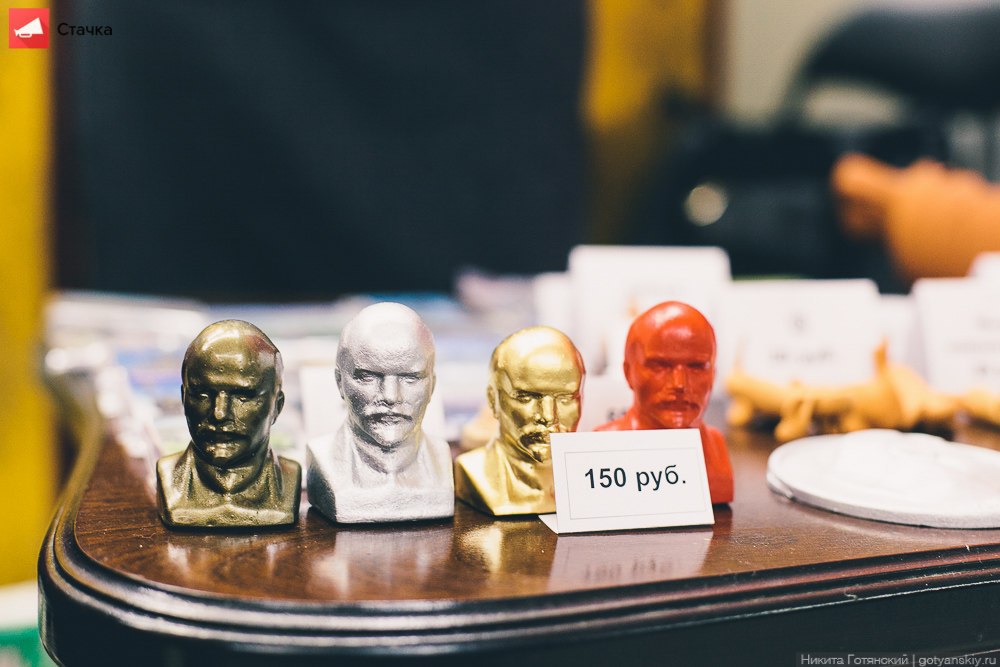
The non-standard entourage is perfectly combined with the name and corporate identity of “Strikes”, as well as its revolutionary slogan Stop working! For four years, these components have formed an image, thanks to which it is now impossible to confuse the “Strike” with any other IT event.
The art director of the Strikes was Nikolai Fetyukhin. The MST Agency team did a great job on the style of the conference. And the Interra company, led by CEO Alexei Shamarin, had a hand in the design and distribution.
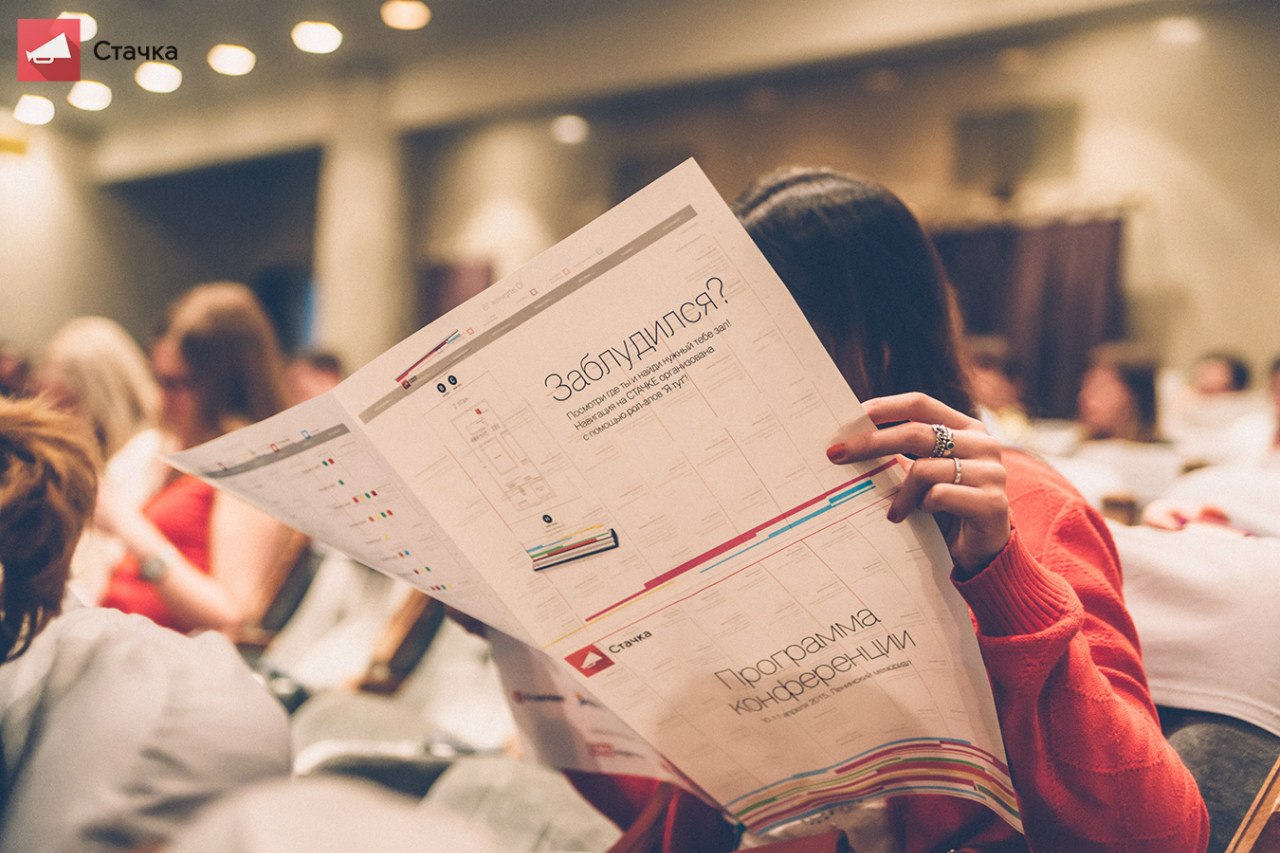
Historical excursion
The conference was organized by six IT companies in Ulyanovsk: MST Agency, Simtech, AdvantShop.NET, SimbirSoft, Interra, Argenta, as well as the IT Development Association, headed by Valery Kostin, CEO of Stachka LLC. For four years in a row, having combined efforts and competencies, they create a cool event in their city.
The organization also helps sponsors. In 2015, Microsoft became the general sponsor; platinum sponsors - IBS, Machine Zone, Mobirate; gold - investment and construction company "West"; silver - Provectus, 1C-Bitrix, Money Online, Sepyra, Cubo.
The results of the first “Strike” in 2012 were 1,500 participants, 30 speakers, lots of positive reviews and a place in the five most significant conferences according to RUWARD. In 2013, “Strike” hit the map of the infrastructure of the digital market in Russia as one of the most significant events in IT and thereby “condemned” itself to further development.
“The conference was conceived four years ago to raise the level of local companies, attract large projects and strong specialists to the region. Now it solves not only this problem, but also “shakes up” the entire industry from St. Petersburg to Novosibirsk, ”said Artem Gavrishin, CEO of Simtech Development.
Nikolai Fetyukhin spoke about how the “Strike" arose, the experience gained and the division of duties in his article on Digib.
In its scale and quality of content, “Strike” in 2015 set a high, hard-to-reach bar for all regional conferences. Next year, the Strike will have a five-year anniversary, and the organizers have a duty to jump over the taken height. Although they already promise to add a feature to the anniversary "Strike", which is not present at any conference in Russia. It remains only to wait until next year and prepare for a sensation.
